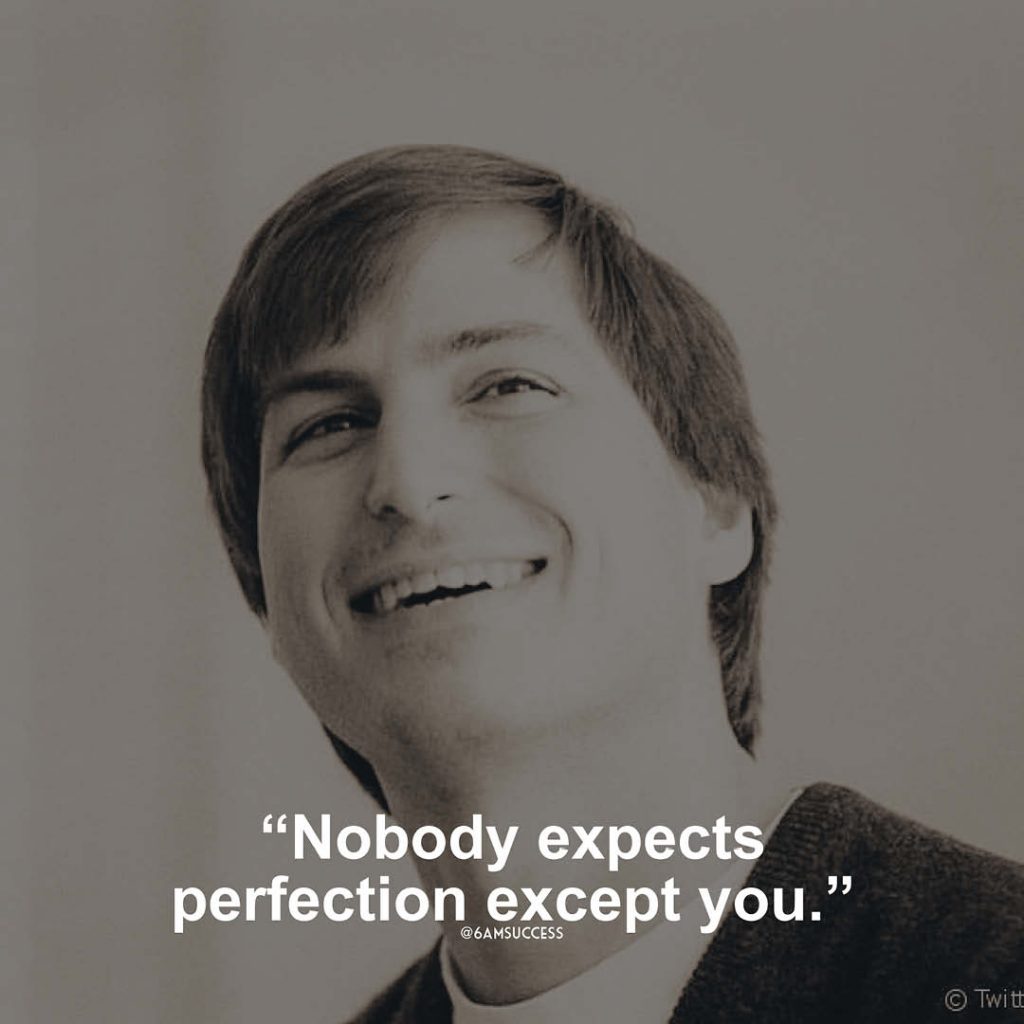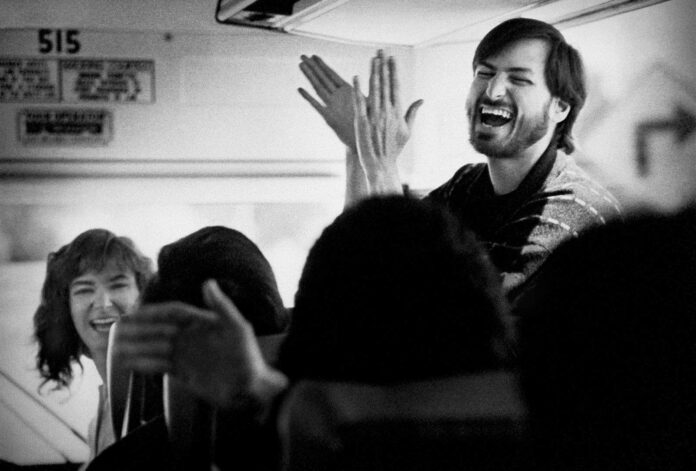This is one of my favorite books on communication. If you want to improve at communicating your ideas (and who doesn’t?), this book can help. Here are a few of my take-aways:
* Create simple, memorable bottom lines: “The iPod: One thousand songs in your pocket.”
” Though he was a computer-guy, he wrote his talks in pen and paper. “There’s just something about paper and pen and sketching out rough ideas in the ‘analog world’ in the early stages that seem to lead to more clarity and better, more creative results.”
* Steve Jobs presentations follow Aristotle’s five-point plan:
1. Deliver a story that arouses interest.
2. Pose a problem or question that has to be solved or answered.
3. Offer a solution to a problem you raised.
4. Describe specific benefits for adopting the course of action set forth in your solution.
5. State a call to action.
* Ask yourself the question the listeners are asking: “Why should I care?”
* Your audience checks out after 10 minutes.
* Jargon rarely creeps into Steve Jobs’ presentations.
* “If you can’t explain it simply, you don’t understand it well enough.” Albert Einstein.
* Have fun.
Here are the top 37 quotes from The Presentation Secrets of Steve Jobs
1. “A person can have the greatest idea in the world— completely different and novel—but if that person can’t convince enough other people, it doesn’t matter.”–GREGORY BERNS
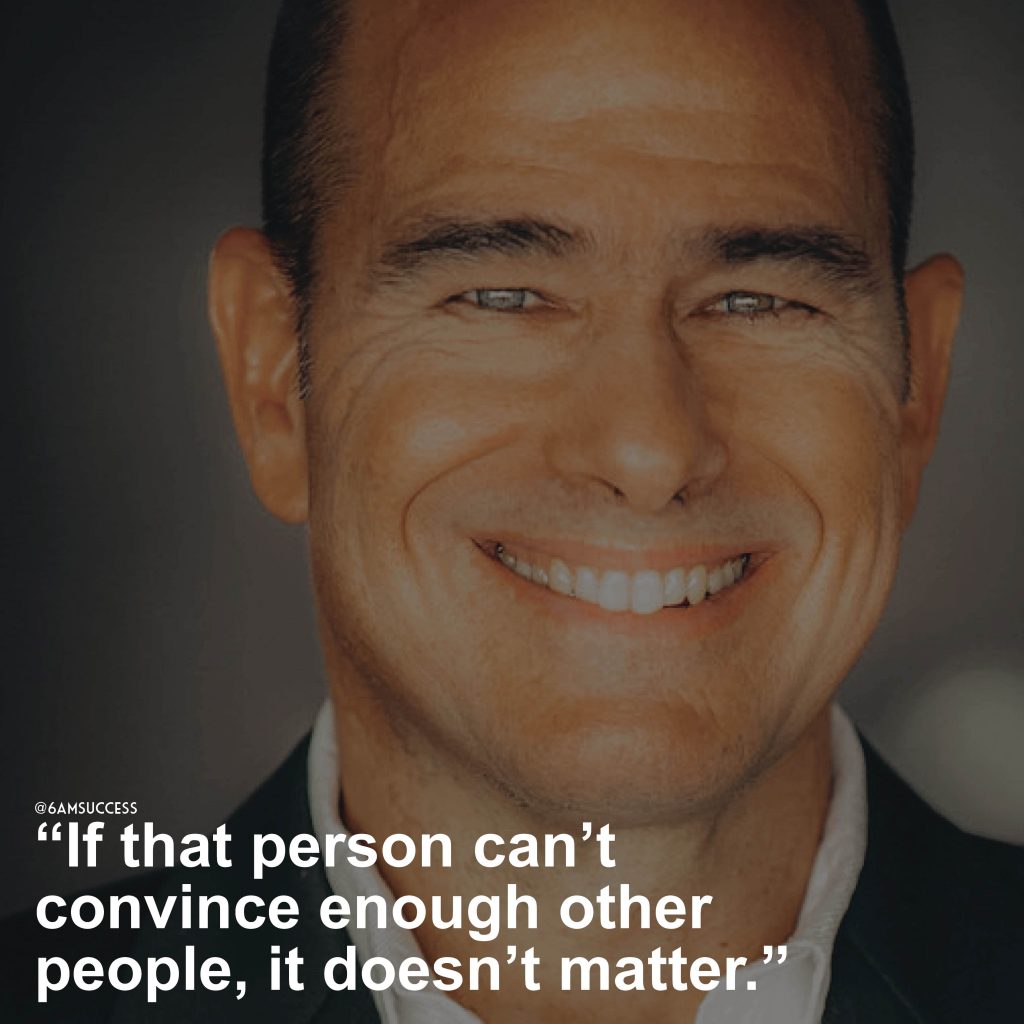
2. “Most business professionals give presentations to deliver information. Not Jobs. A Steve Jobs presentation is intended to create an experience—”a reality distortion field”—that leaves his audience awed, inspired, and wildly excited.”
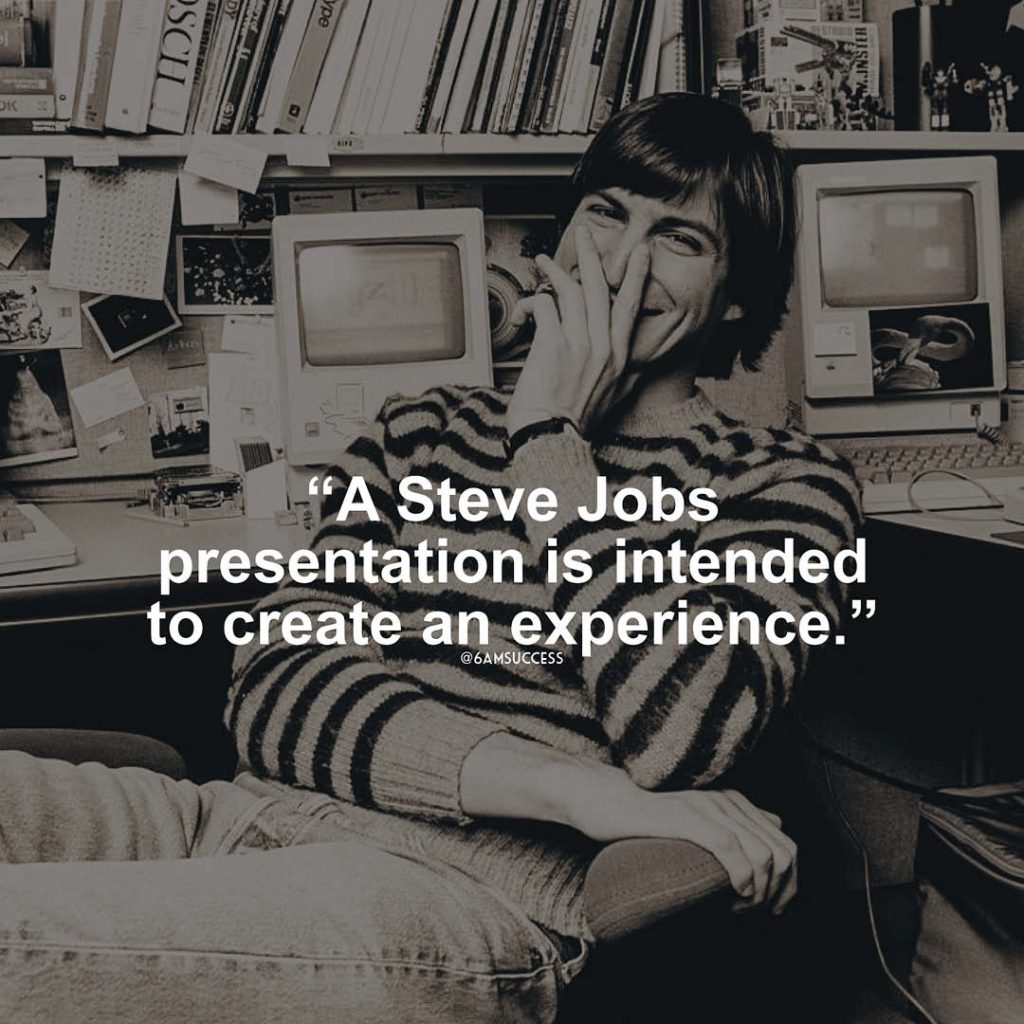
3. “Starbucks CEO Howard Schultz does not sell coffee. He sells a “third place” between work and home. Financial guru Suze Orman does not sell trusts and mutual funds. She sells the dream of financial freedom. In the same way, Jobs does not sell computers. He sells tools to unleash human potential.”
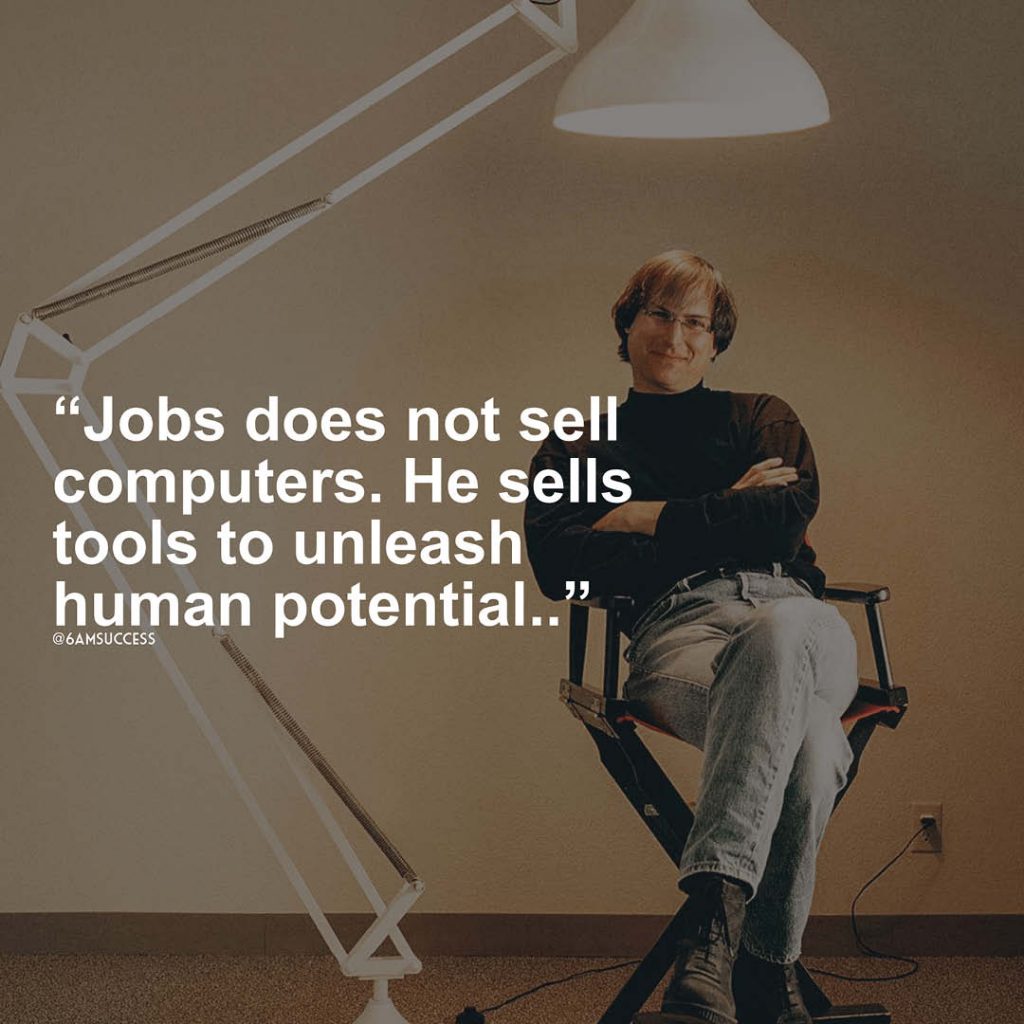
4. “… but the greatest product in the world will be useless without a strong brand evangelist to promote it.”
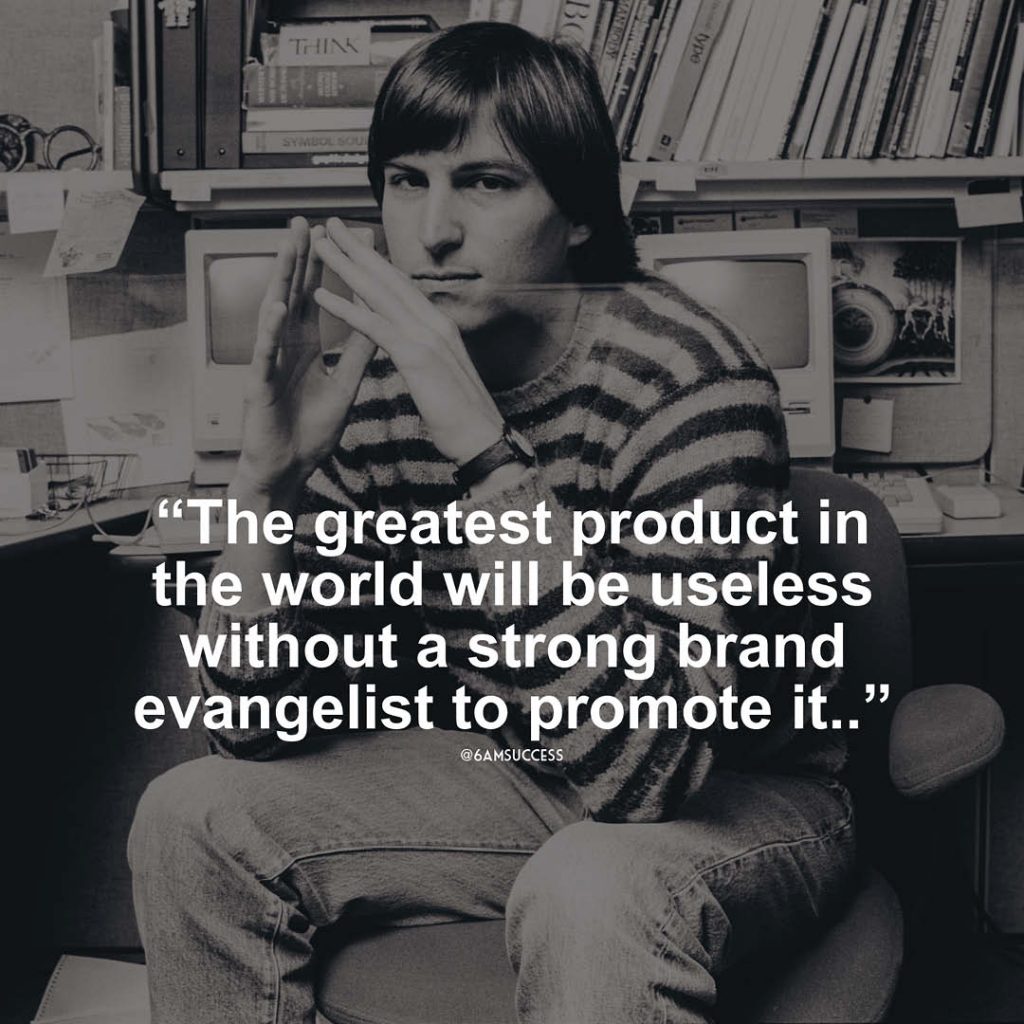
5. “People do not pay attention to boring things.”
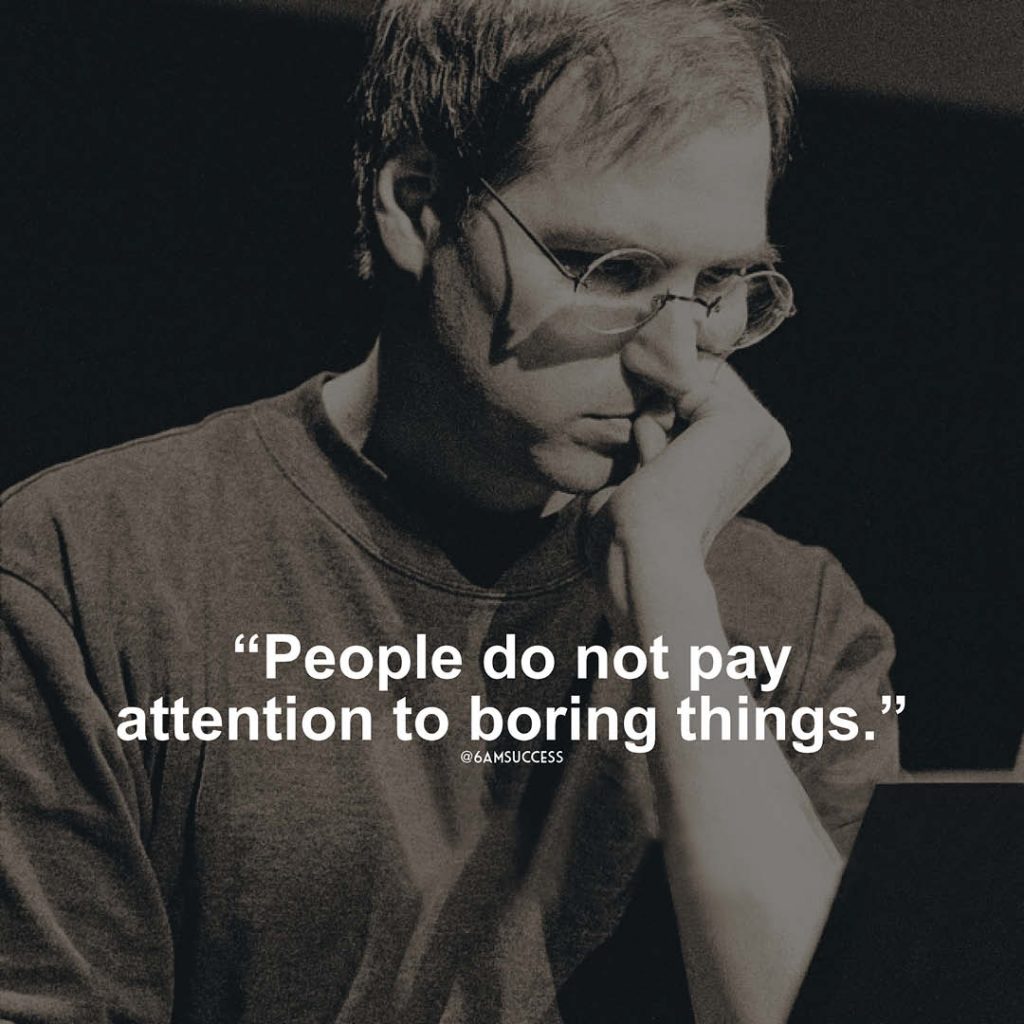
6. “The single most important thing you can do to dramatically improve your presentations is to have a story to tell before you work on your PowerPoint file.”–CLIFF ATKINSON
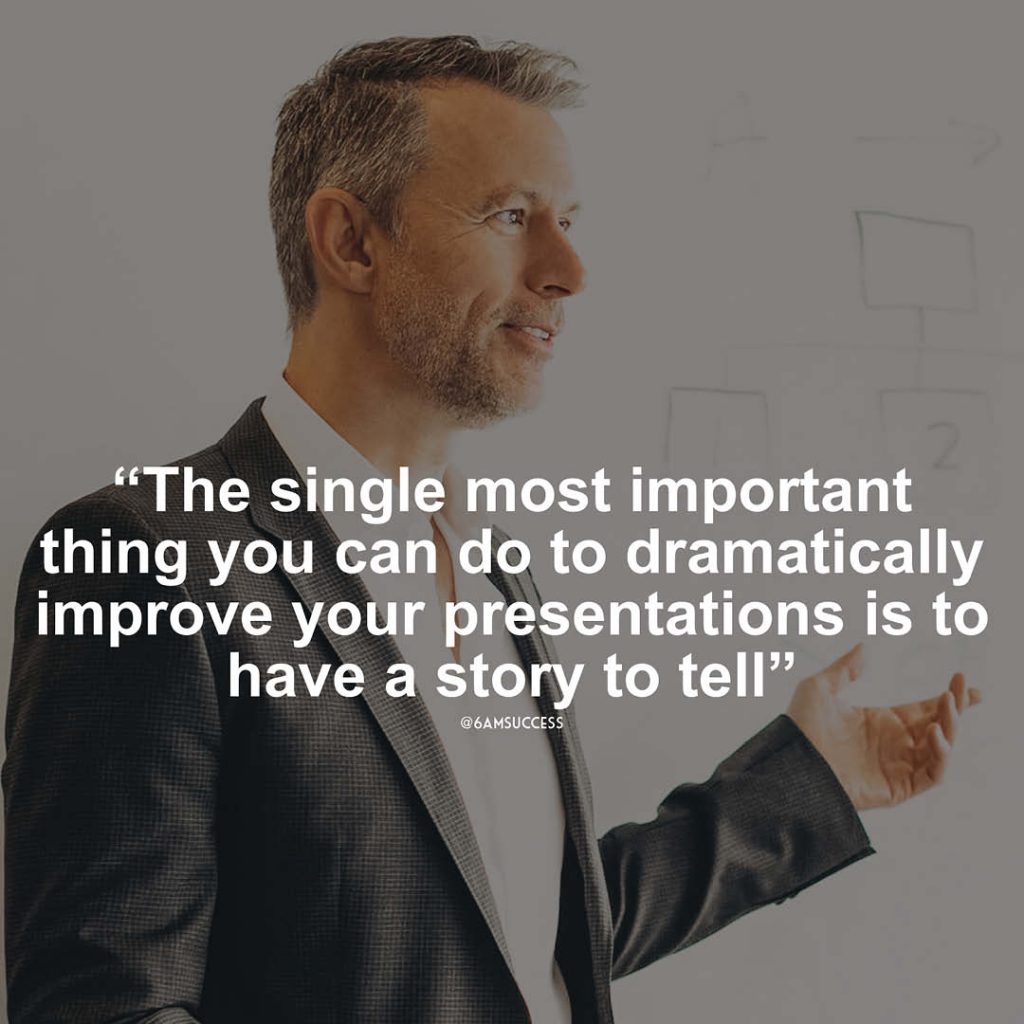
7. “Remember, it’s the story, not the slides, that will capture the imagination of your audience.”
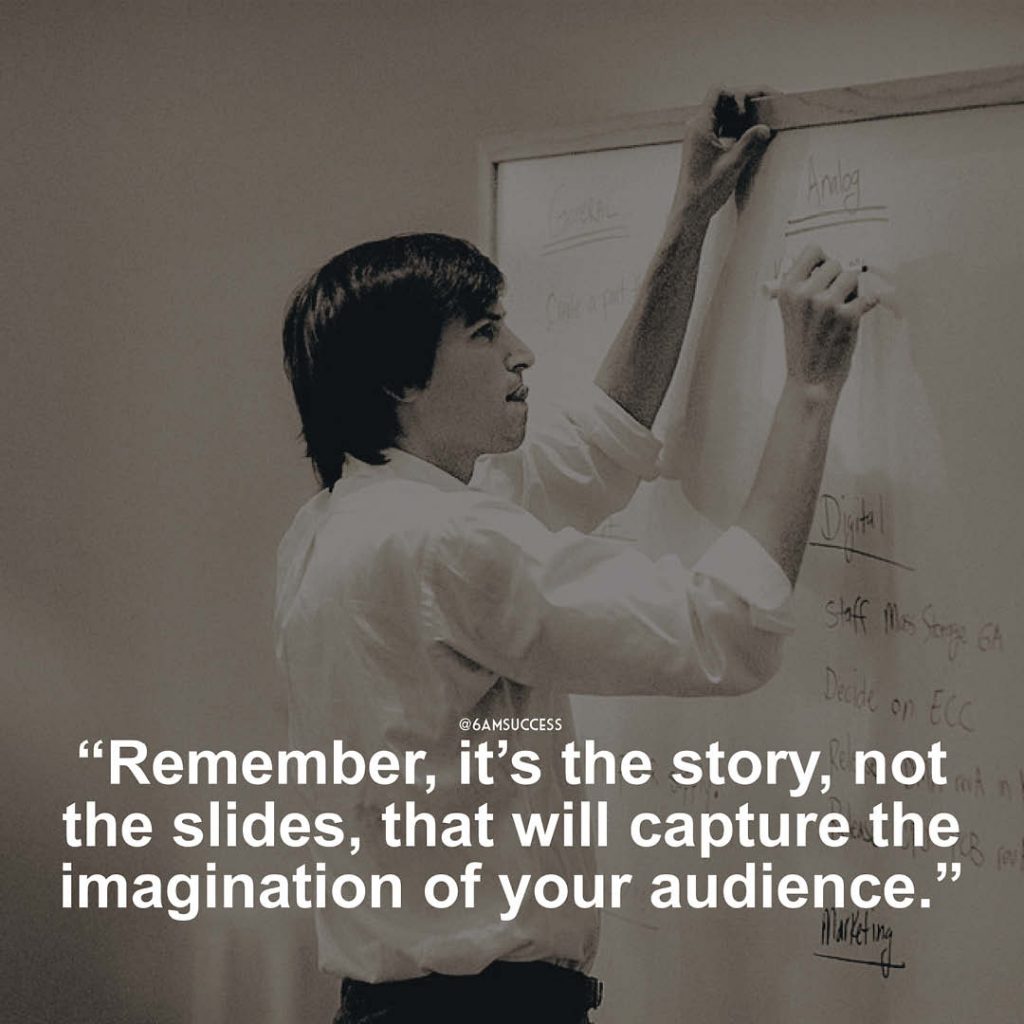
8. “You’ve got to start with the customer experience and work back toward the technology—not the other way around”–STEVE JOBS
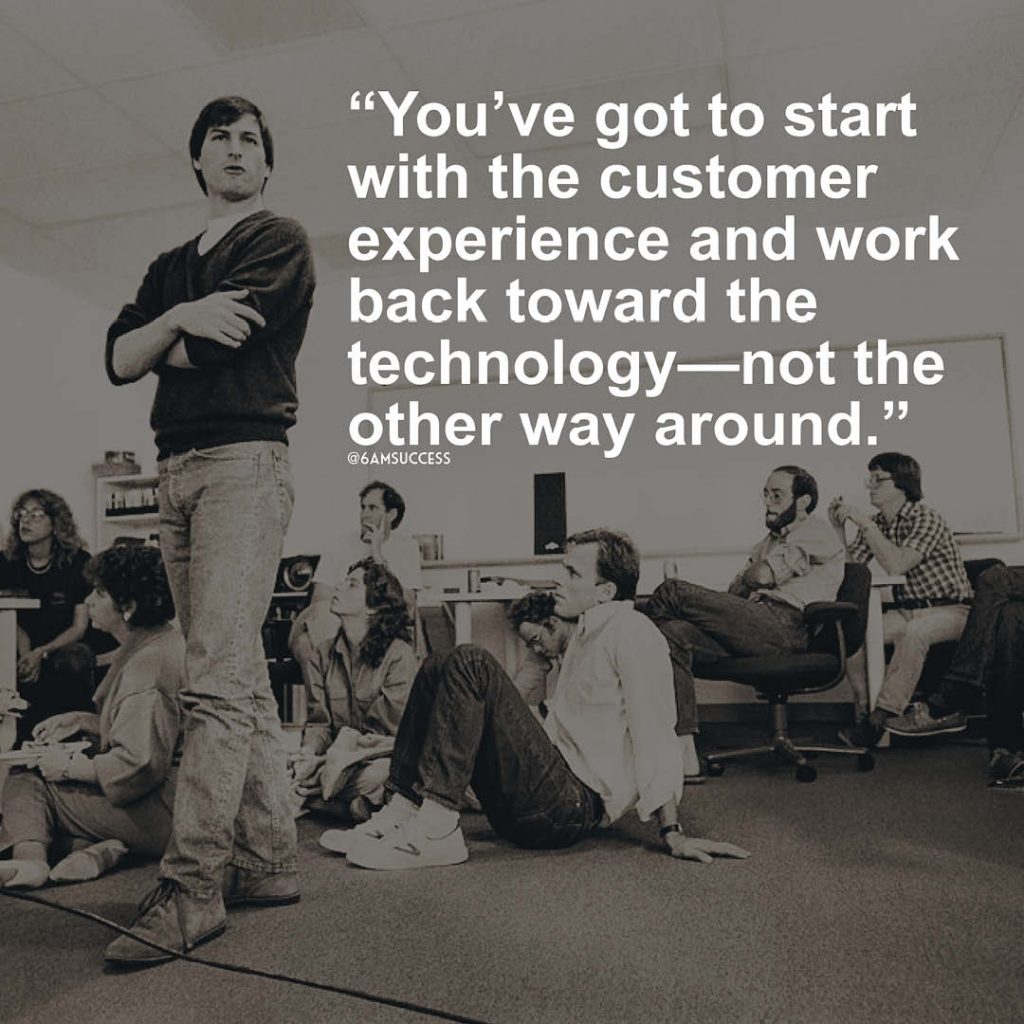
9. “Your audience wants to be informed, educated, and entertained: informed about your product, educated on how it works, and entertained while learning about it. Above all, people want to know the answer to one question: Why should I care?”
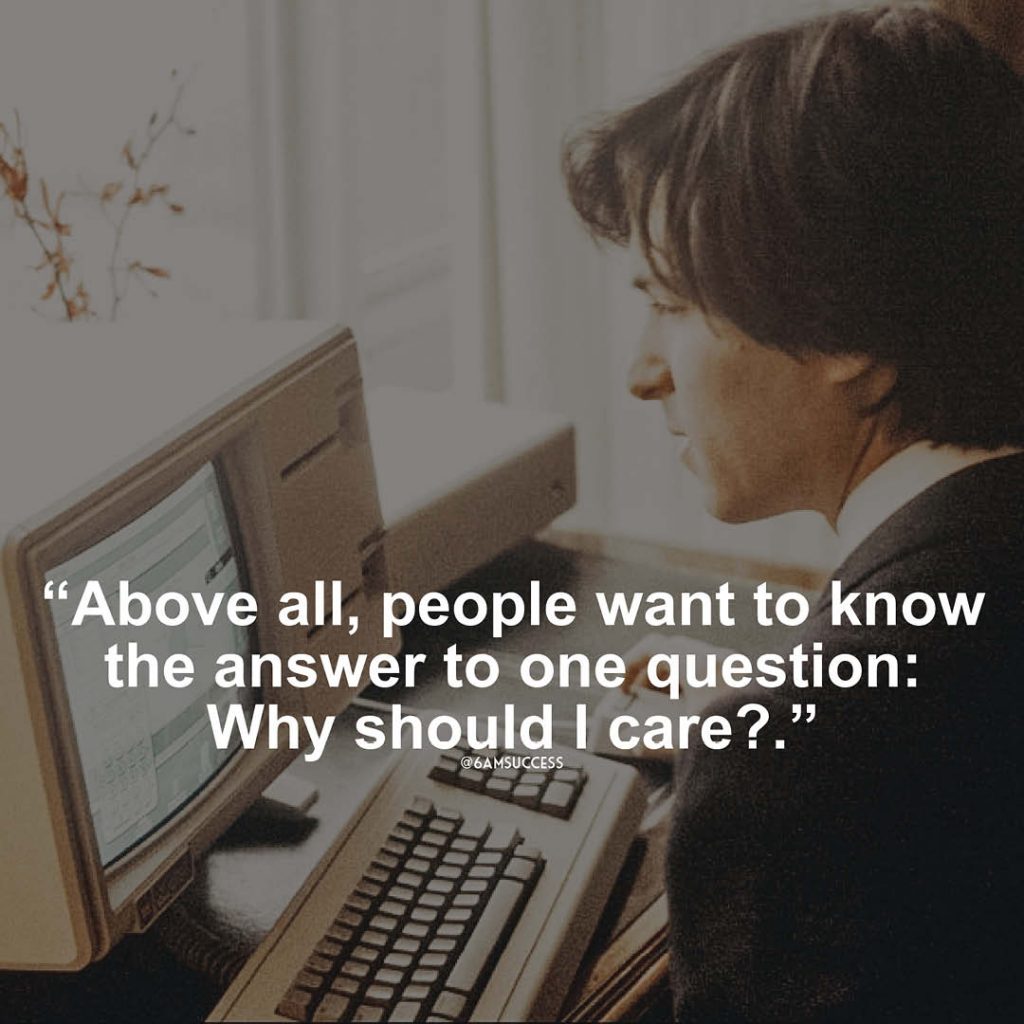
10. “It’s not about you. It’s about them.”
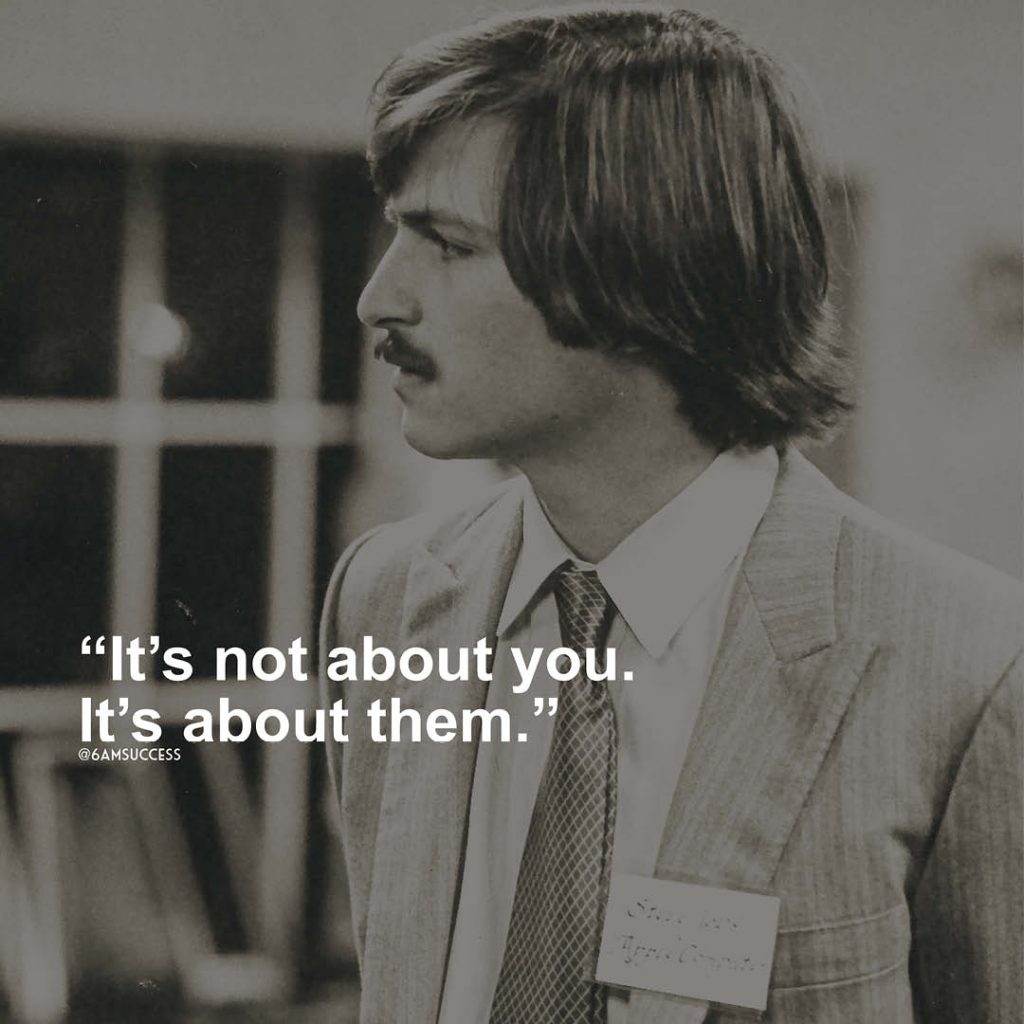
11. “If you pay close attention to Jobs, you will see that he doesn’t ‘sell’ products; he sells the dream of a better future.”
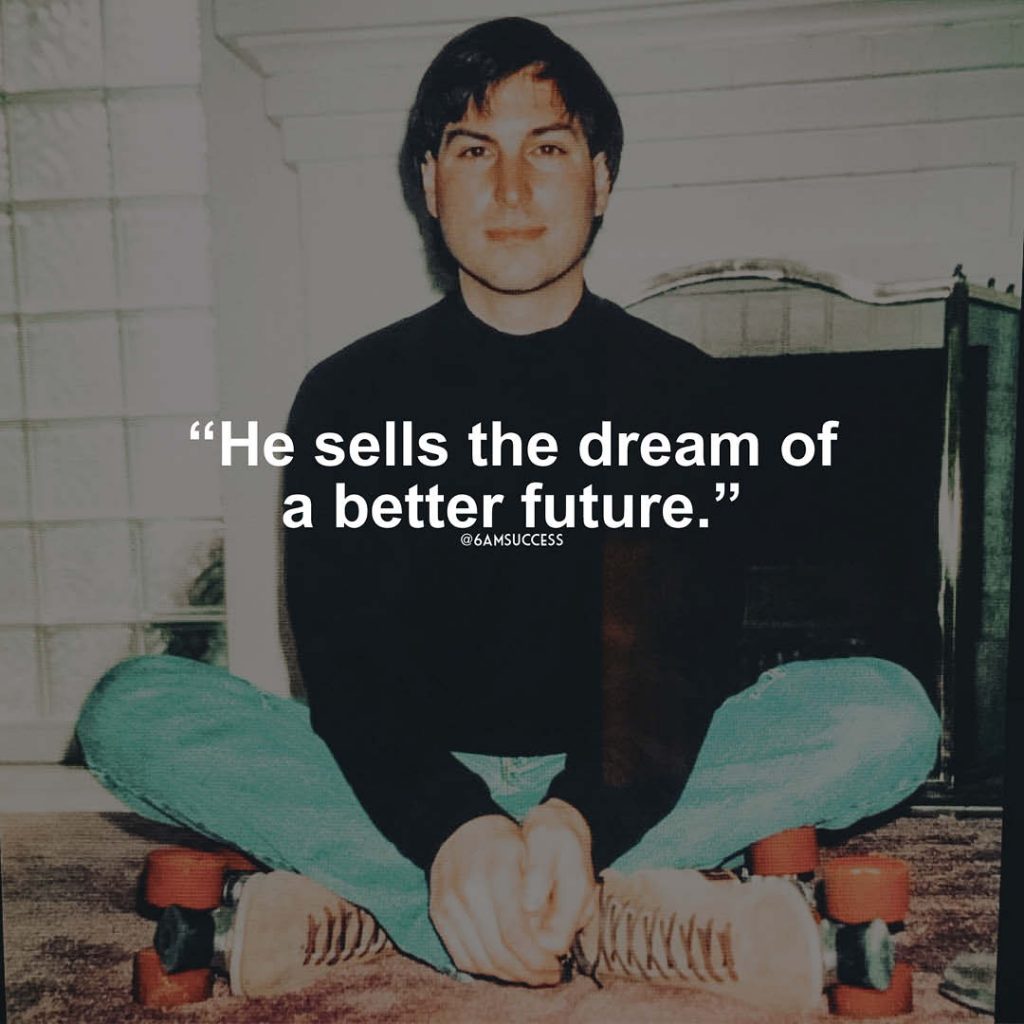
12. “You’ve got to find what you love. Your work is going to fill a large part of your life, and the only way to be truly satisfied is to do what you believe is great work. And the only way to do great work is to love what you do. If you haven’t found it yet, keep looking. Don’t settle.”–STEVE JOBS
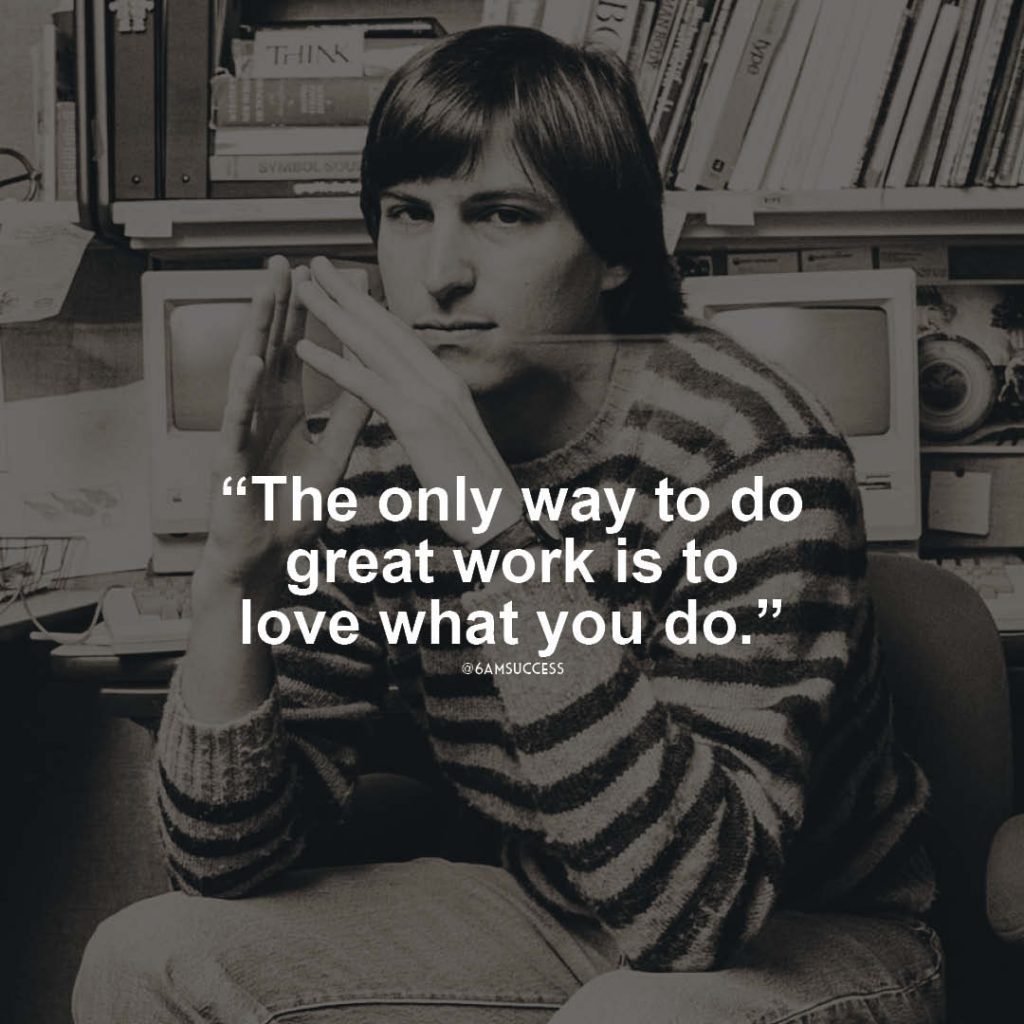
13. “Find something you love to do so much, you can’t wait for the sun to rise to do it all over again.”– Chris Gardner
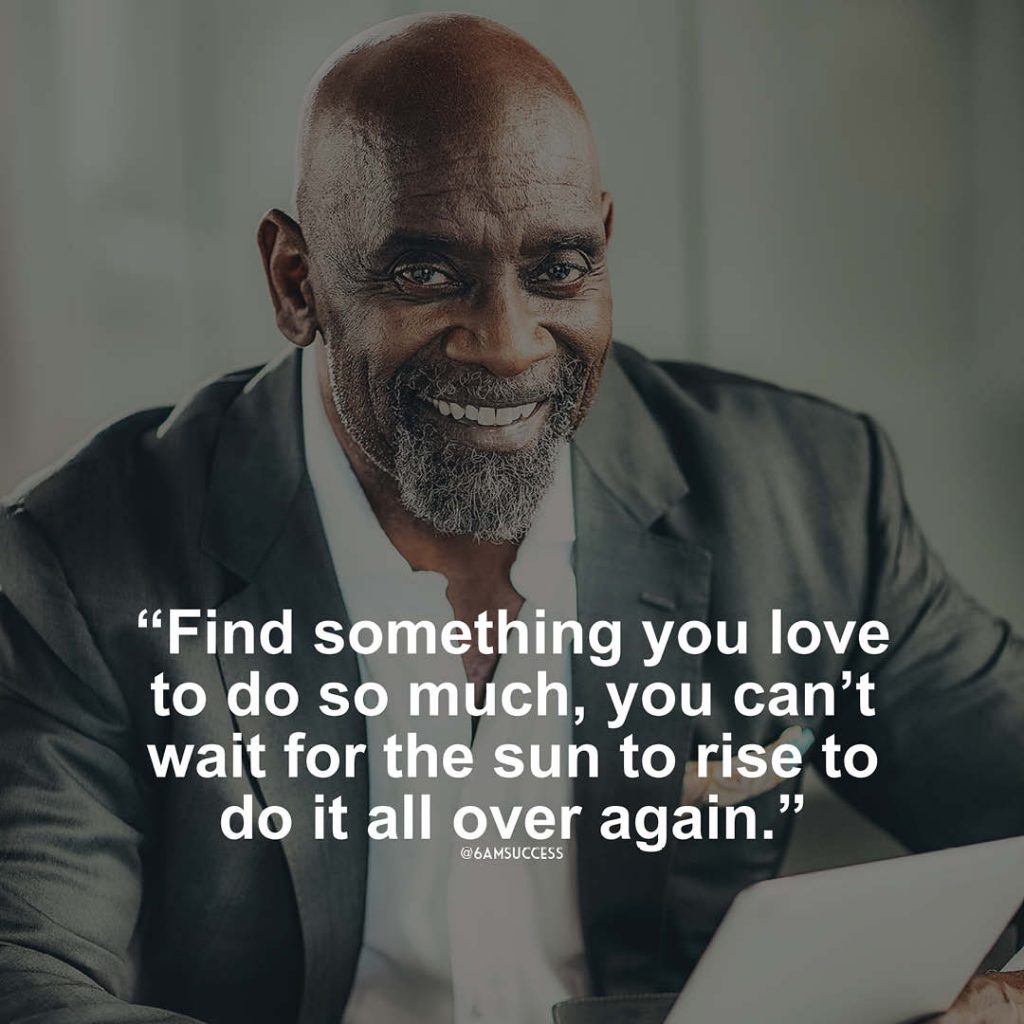
14. “If you don’t have passion, you have no energy, and if you don’t have energy, you have nothing.”–Donald Trump
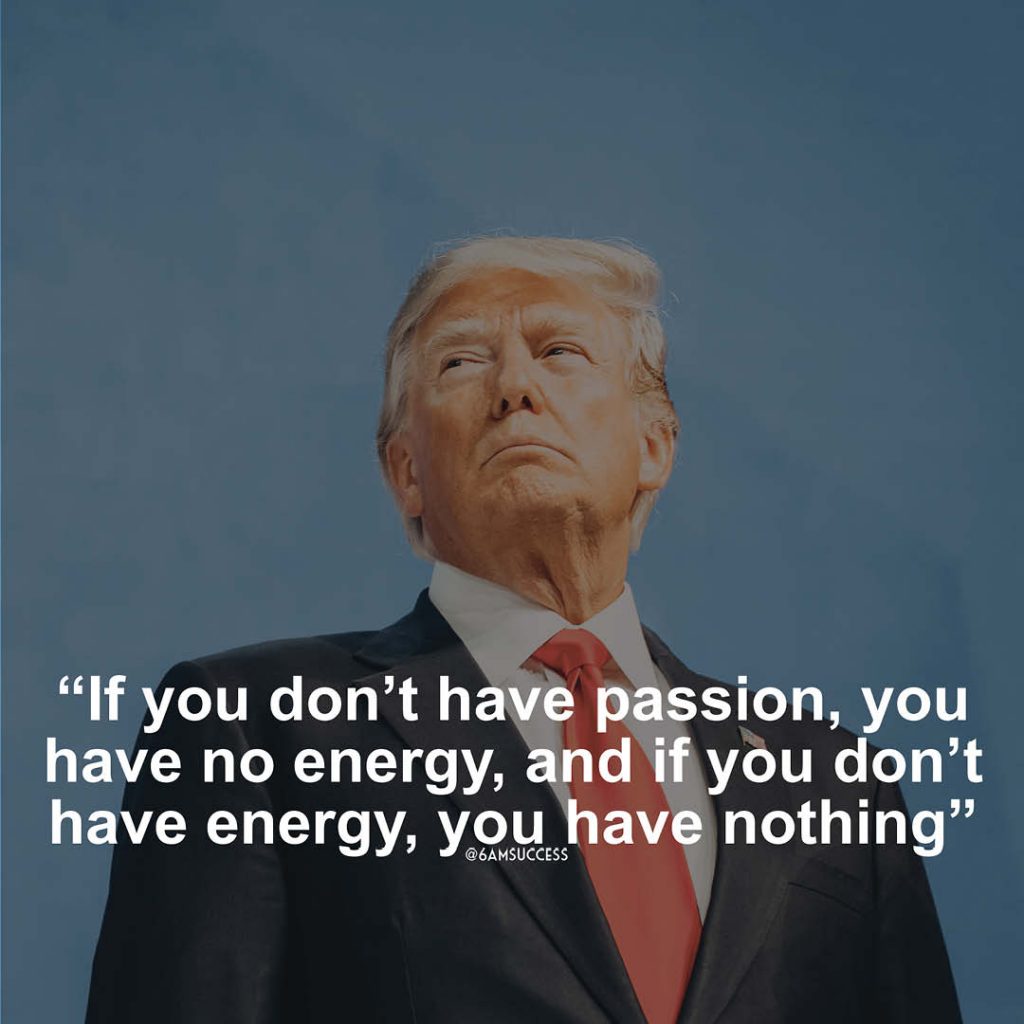
15. “Being the richest man in the cemetery doesn’t matter to me. Going to bed at night saying we’ve done something wonderful… that’s what matters to me.”– Steve Jobs
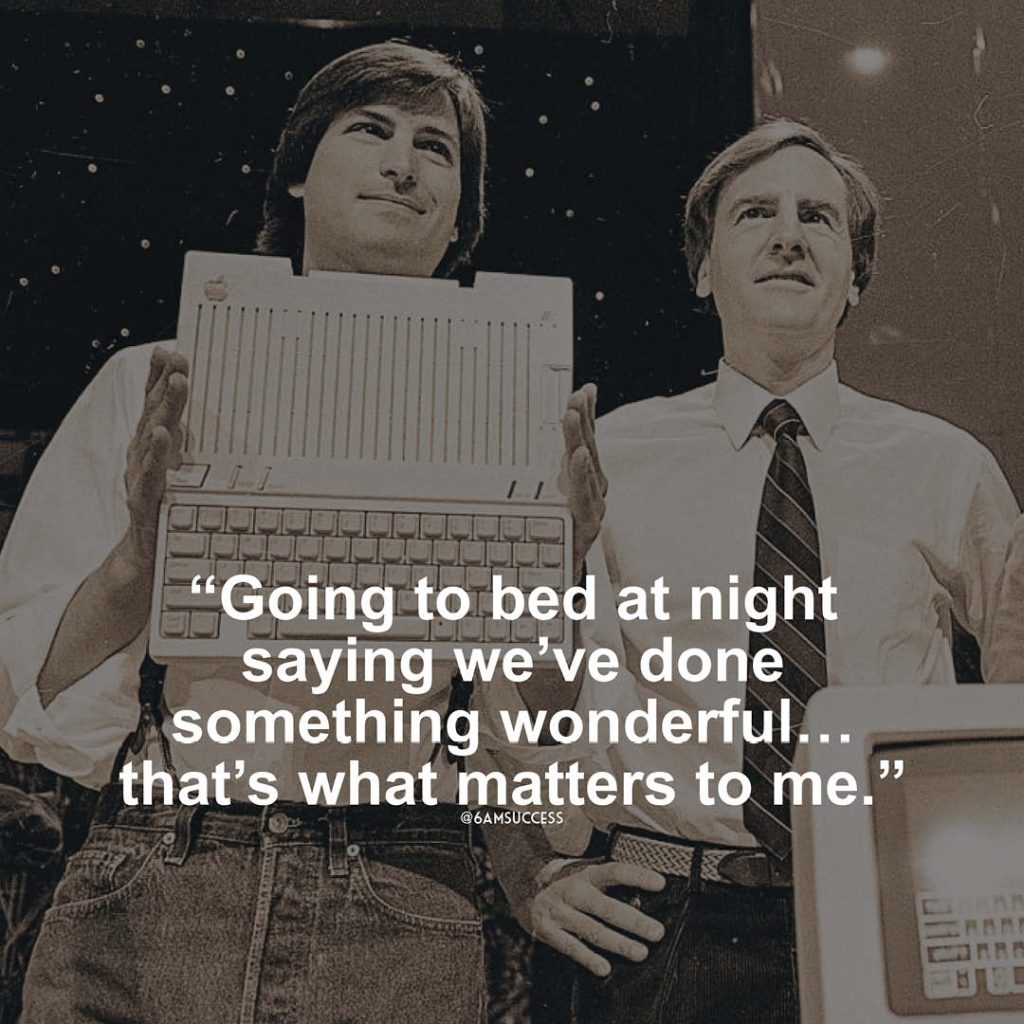
16. “Great leaders rally people to a better future”–Marcus Buckingham

17. “Dig deep to identify that which you are most passionate about. Once you do, share that enthusiasm with your listeners. People want to be moved and inspired, and they want to believe in something. Make them believe in you”
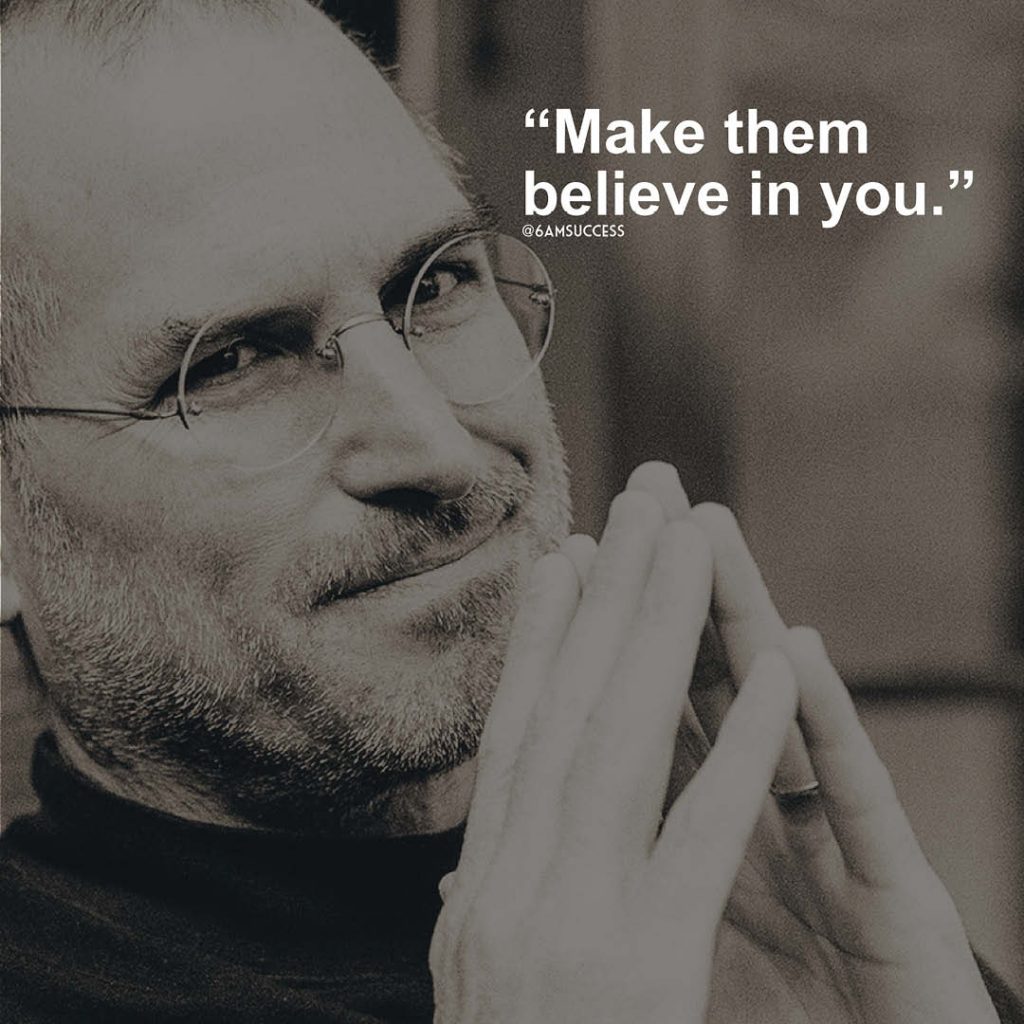
18. “Today, Apple reinvents the phone.”
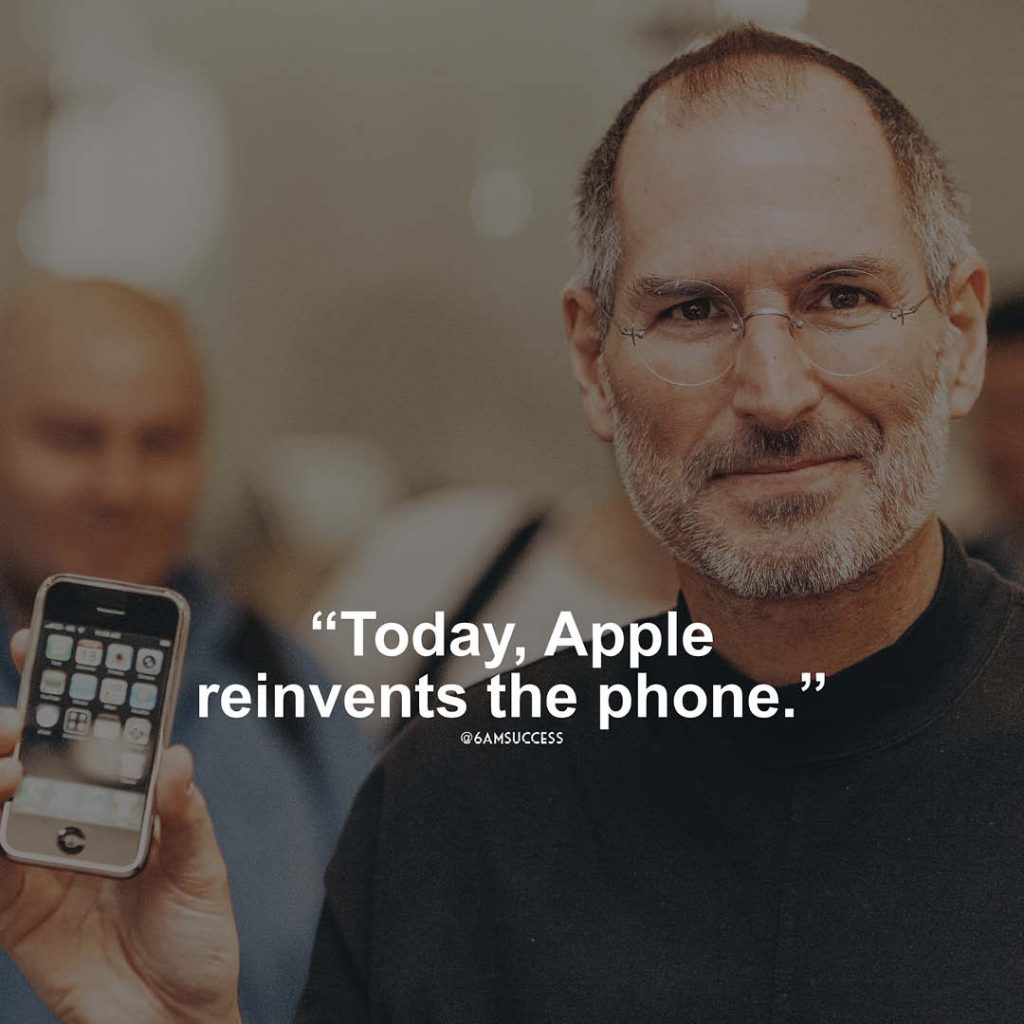
19. “…this us-versus- them strategy attracts fans, incites controversy, creates loyalty, and gets us thinking—and arguing—and, of course, buying.”–Martin Lindstrom
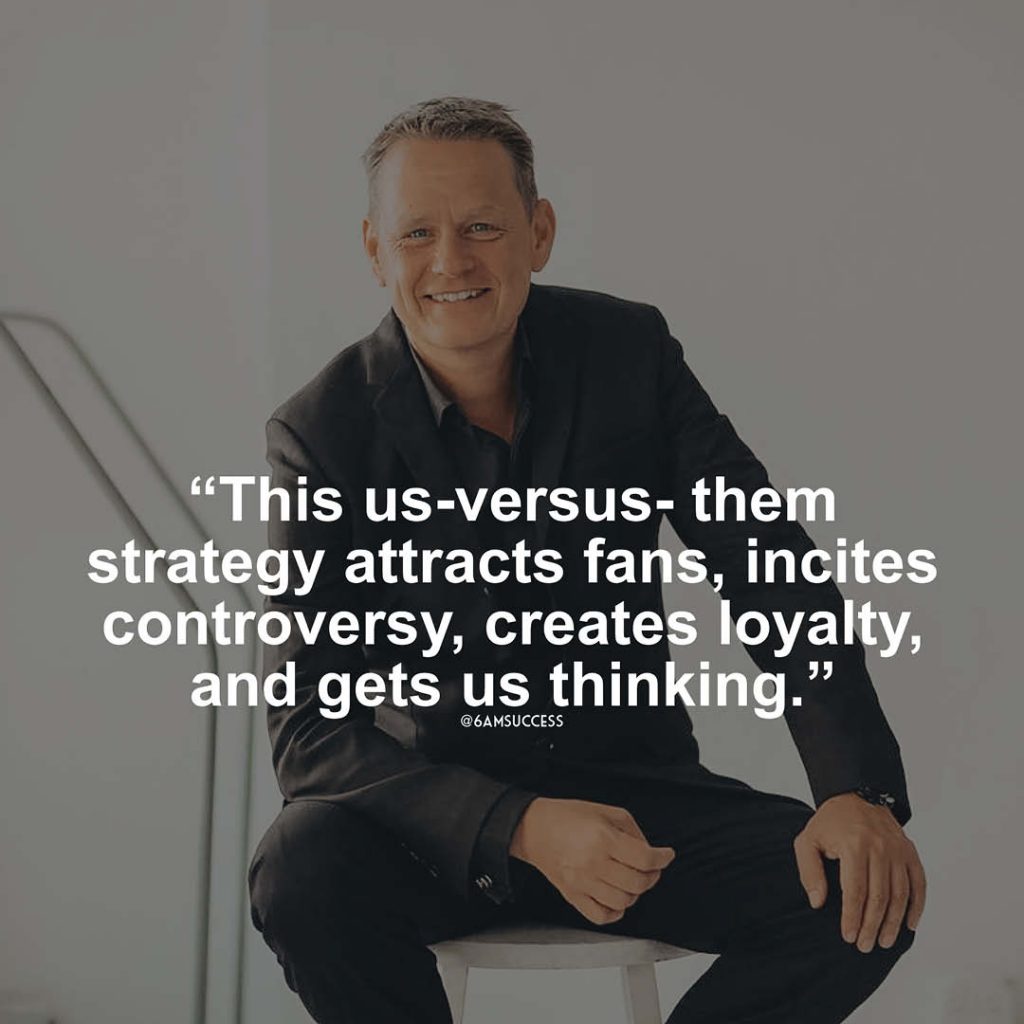
20. “Remember, nobody cares about your product. People care about solving their problems.”
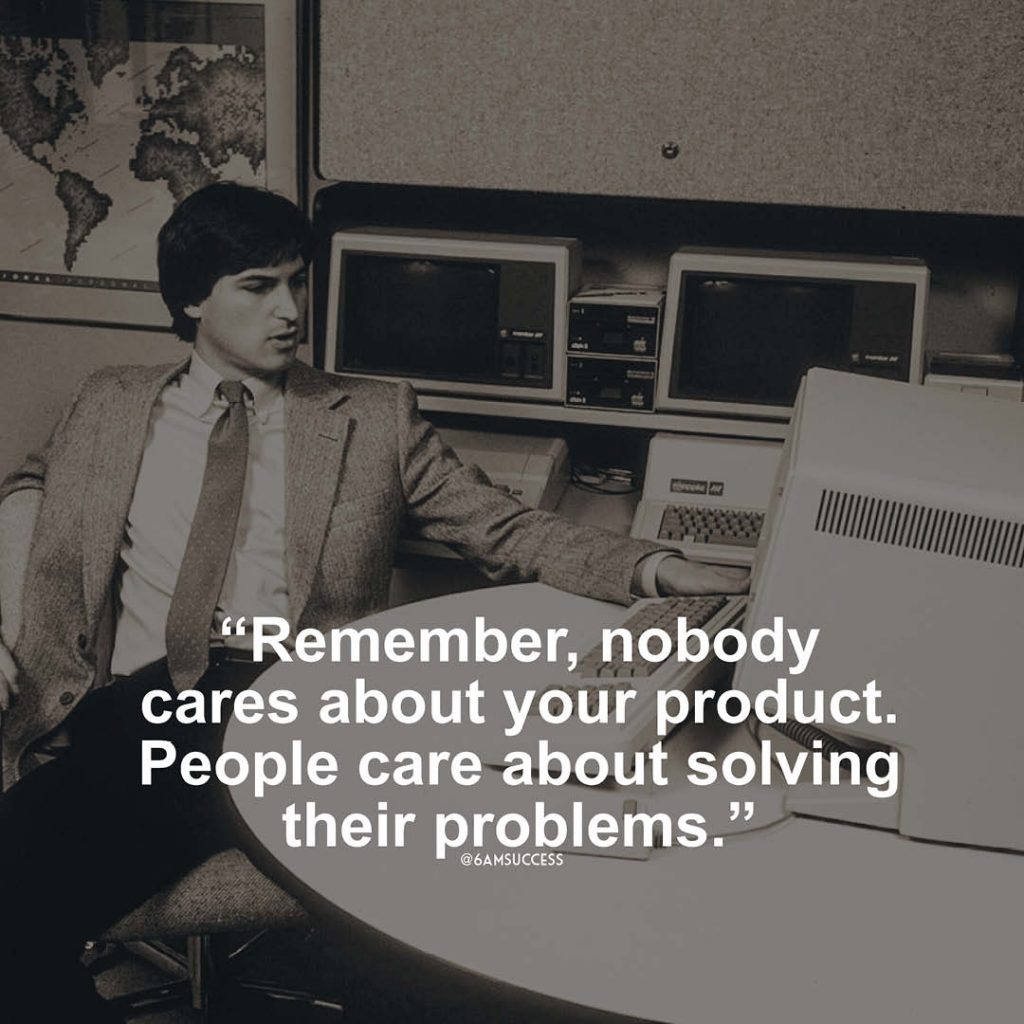
21. “Jobs Doesn’t Sell Computers; He Sells an Experience”
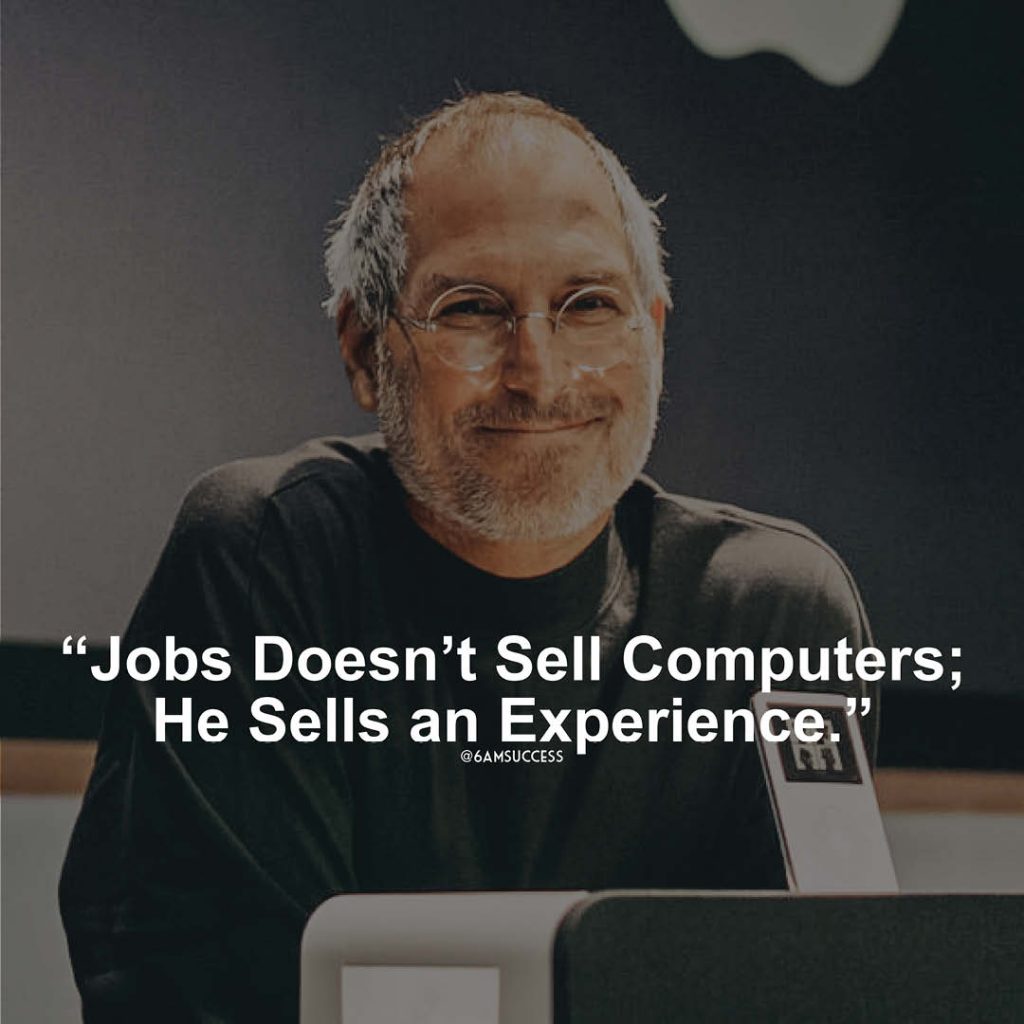
22. “Simplicity is the ultimate sophistication” — Leonardo Da Vinci
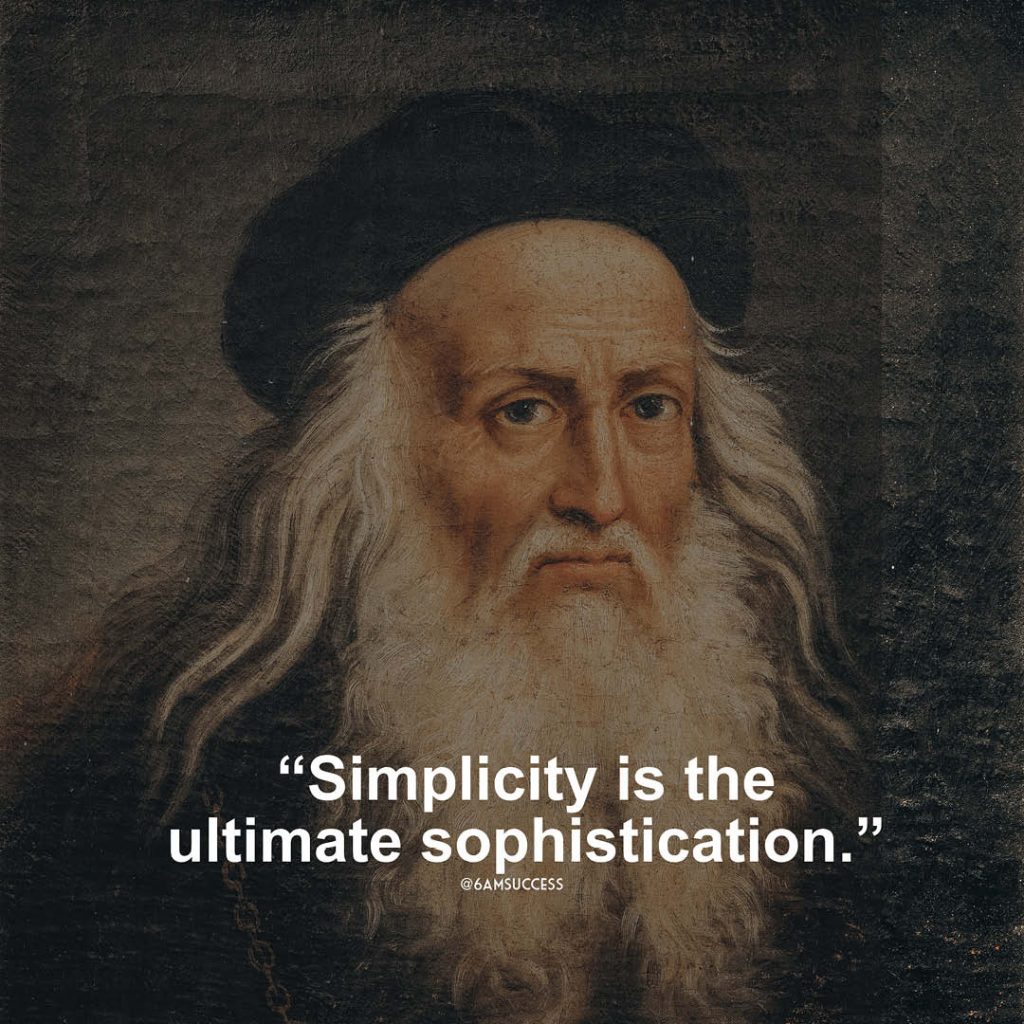
23. “The brain is fundamentally a lazy piece of meat.”–Dr. Gregory Berns
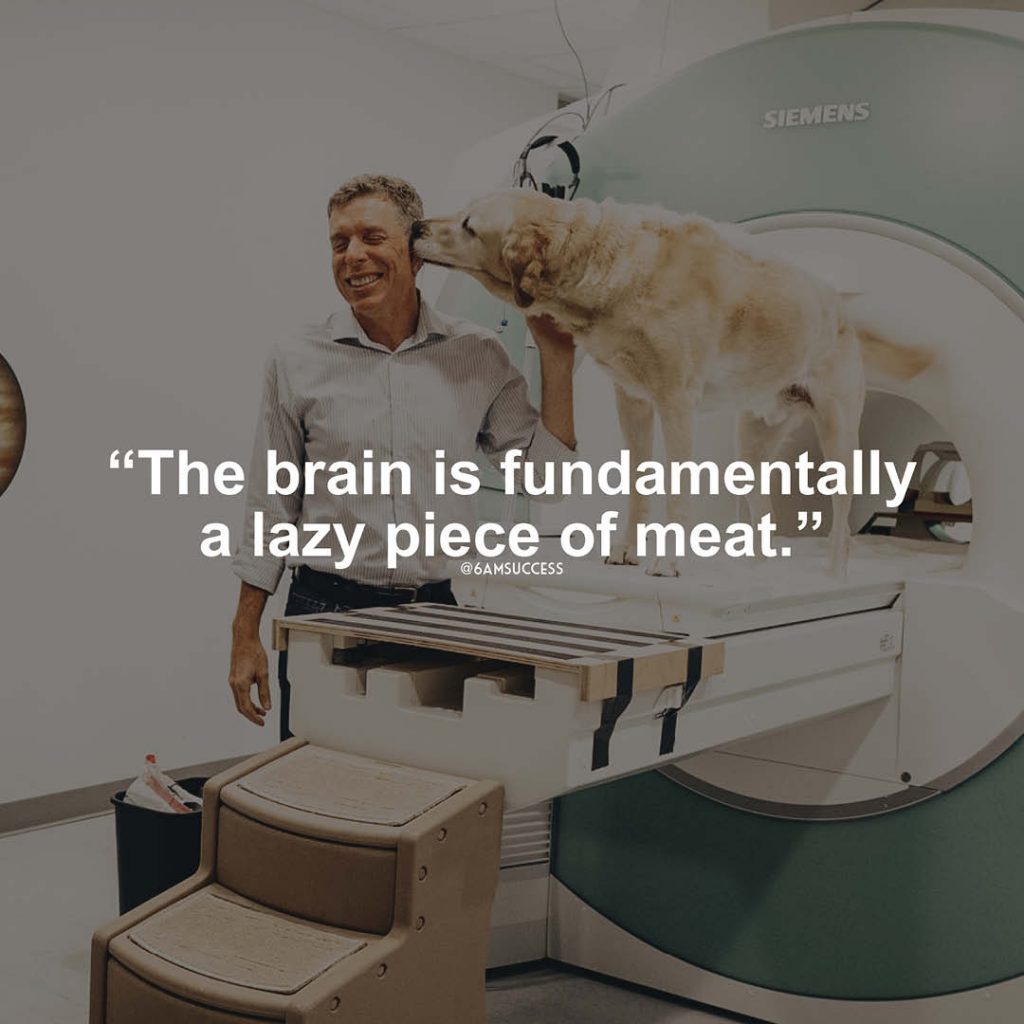
24. “The ability to simplify means to eliminate the unnecessary so that the necessary may speak.”–Hans Hofmann, the influential German painter

25. “My text chokes you, not because my text is not enough like pictures but because my text is too much like pictures. To our cortex, unnervingly, there is no such thing as words.”–JOHN MEDINA

26. “A reference is good. A customer or partner physically sharing the stage is even better.”
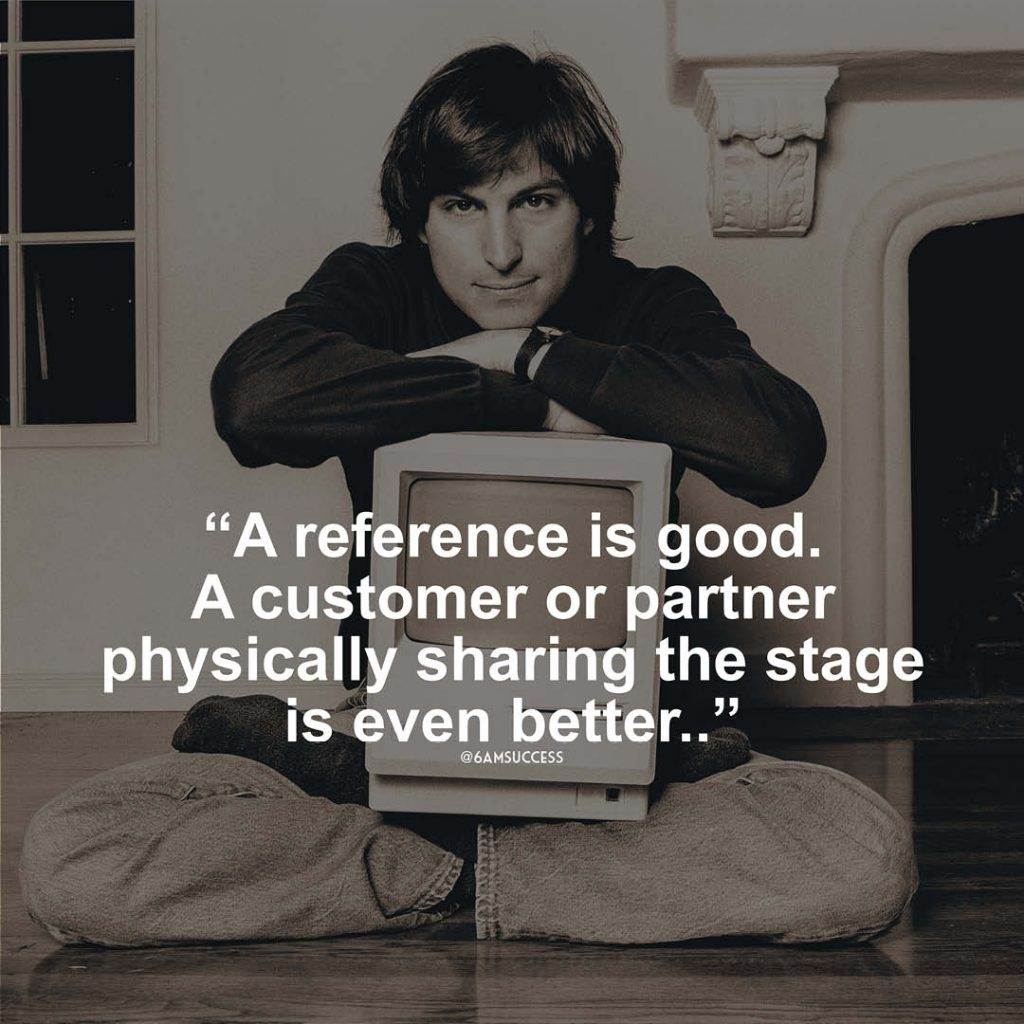
27. “If we screw up, it’s not somebody else’s fault; it’s our fault”–Steve Jobs
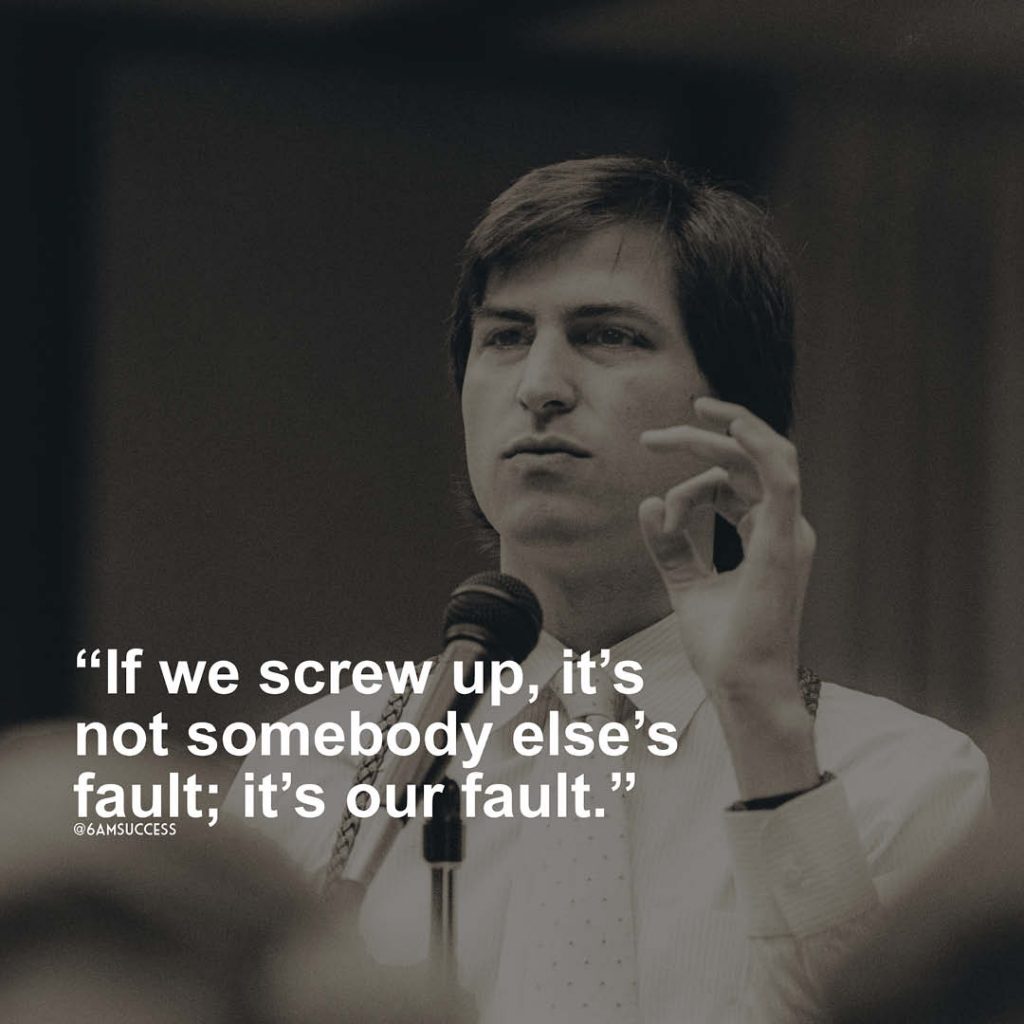
28. “People will forget what you said, people will forget what you did, but people will never forget how you made them feel.”– MAYA ANGELOU

29. “People are making judgments about you all the time, but especially in the first ninety seconds of meeting you.”
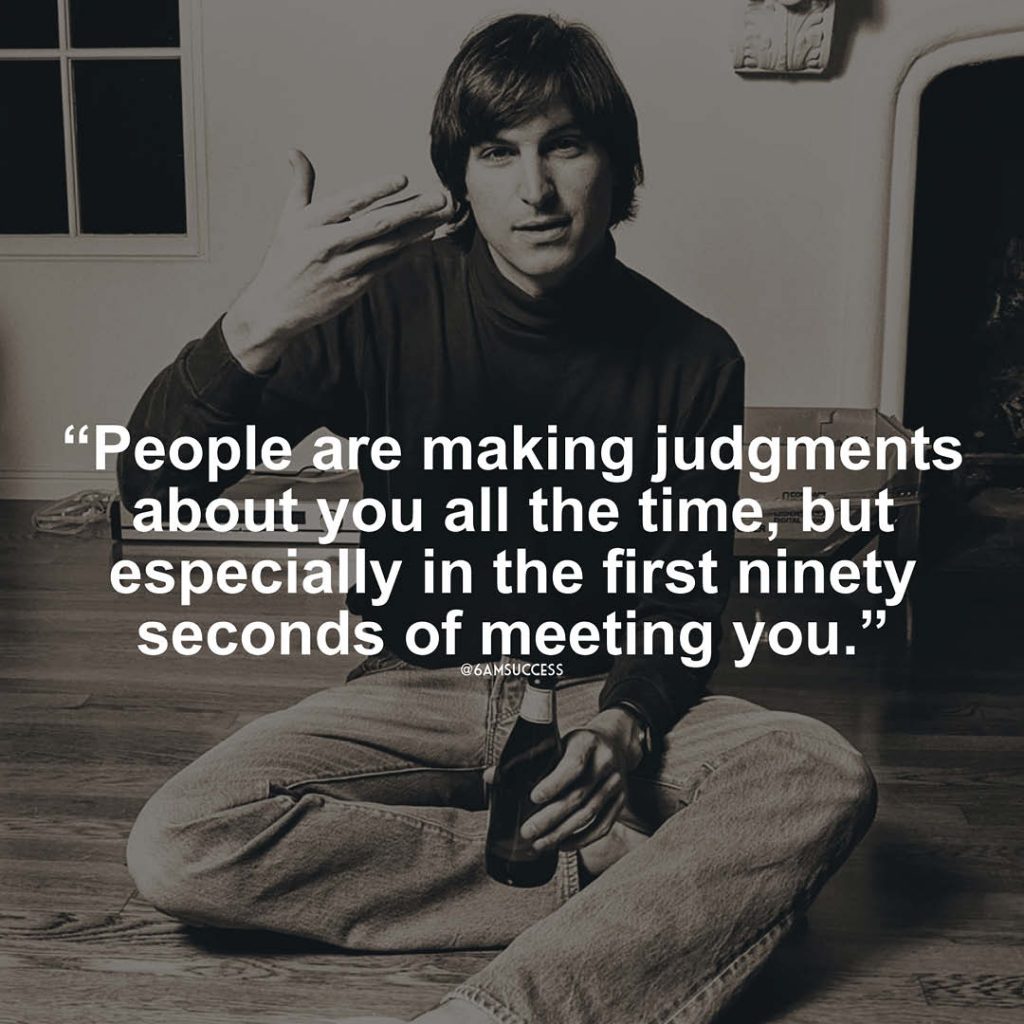
30. “Practice isn’t the thing you do once you’re good. It’s the thing you do that makes you good.”–MALCOLM GLADWELL
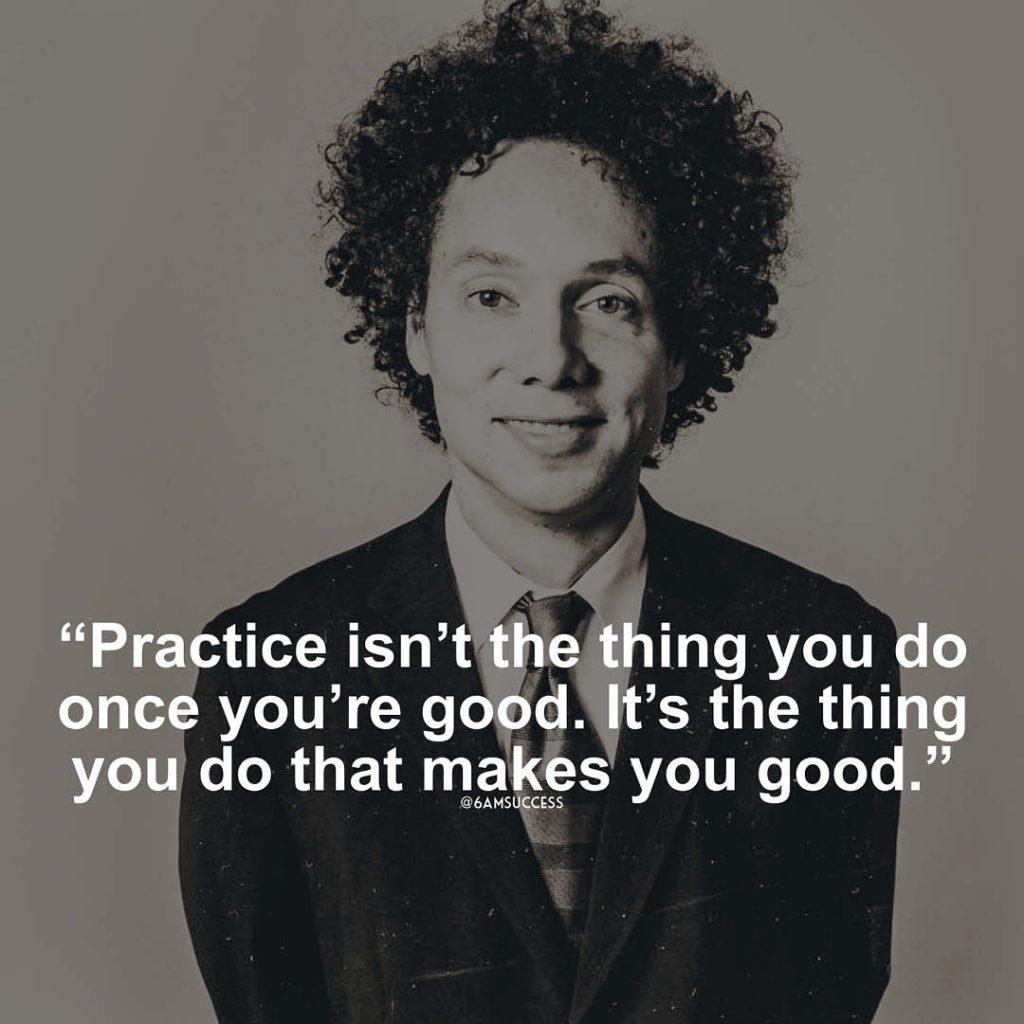
31. “Truth is, the sense of informality comes only after grueling hours of practice.”
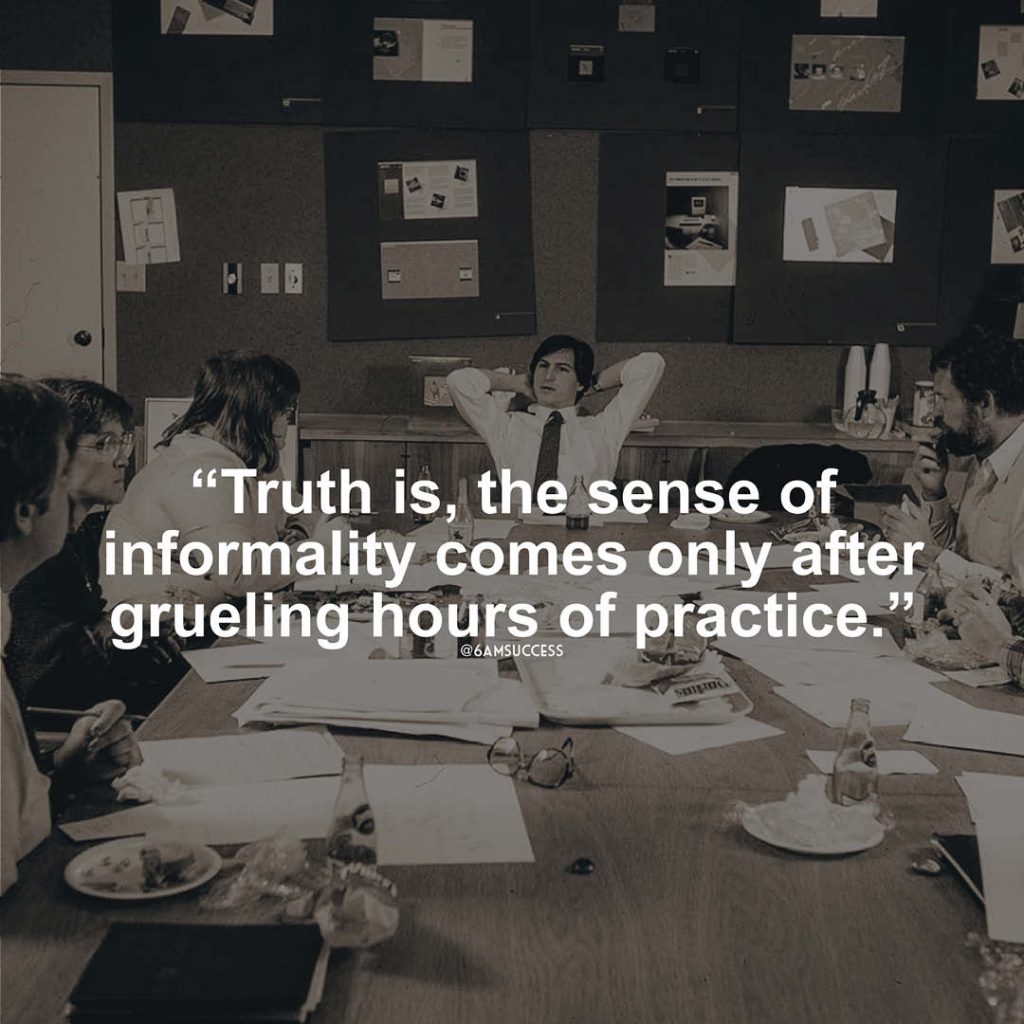
32. “Jobs rehearsed for two full days before the presentation, asking for feedback from the product managers in the room. Jobs spends a lot of time on slides, personally writing and designing much of the content, along with some help from the design team.”
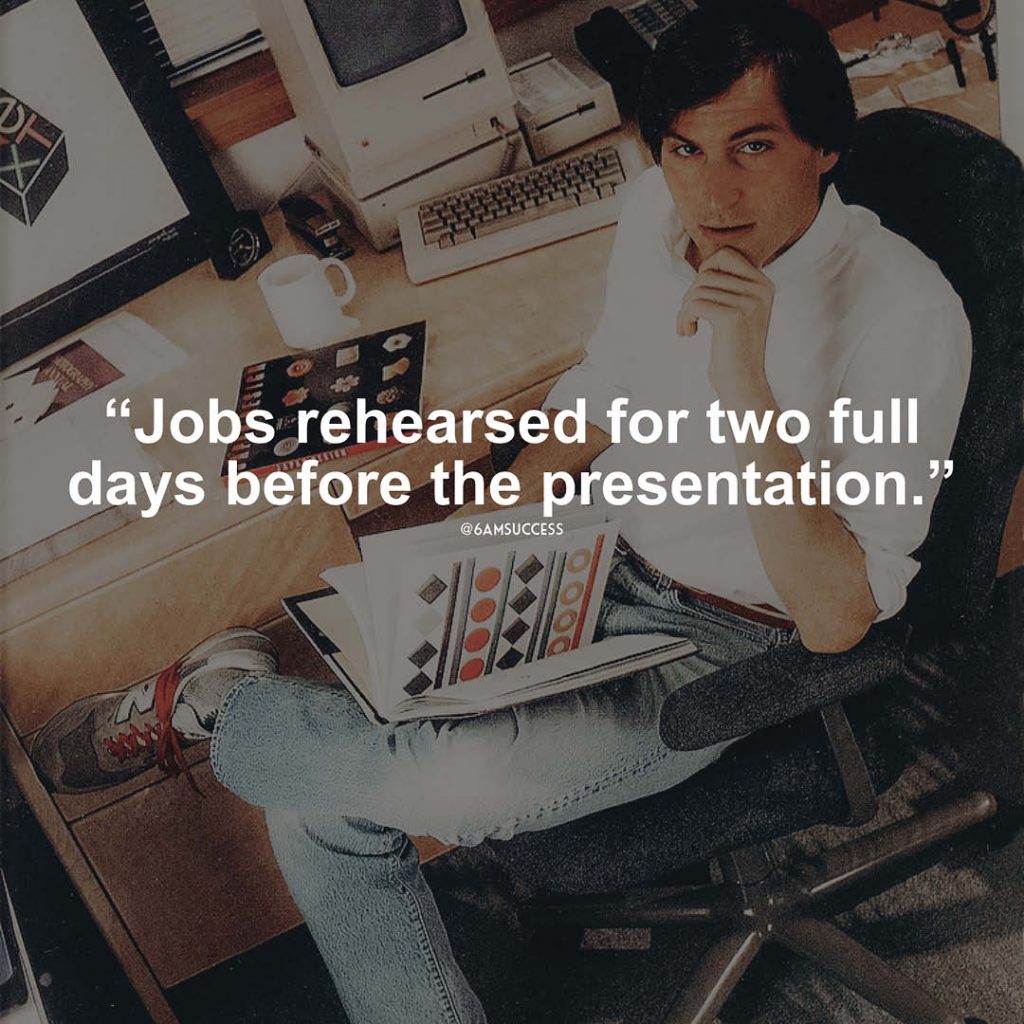
33. “…learning requires consolidation in neural tissue; the more experiences we have with a particular action, the stronger those connections become.”
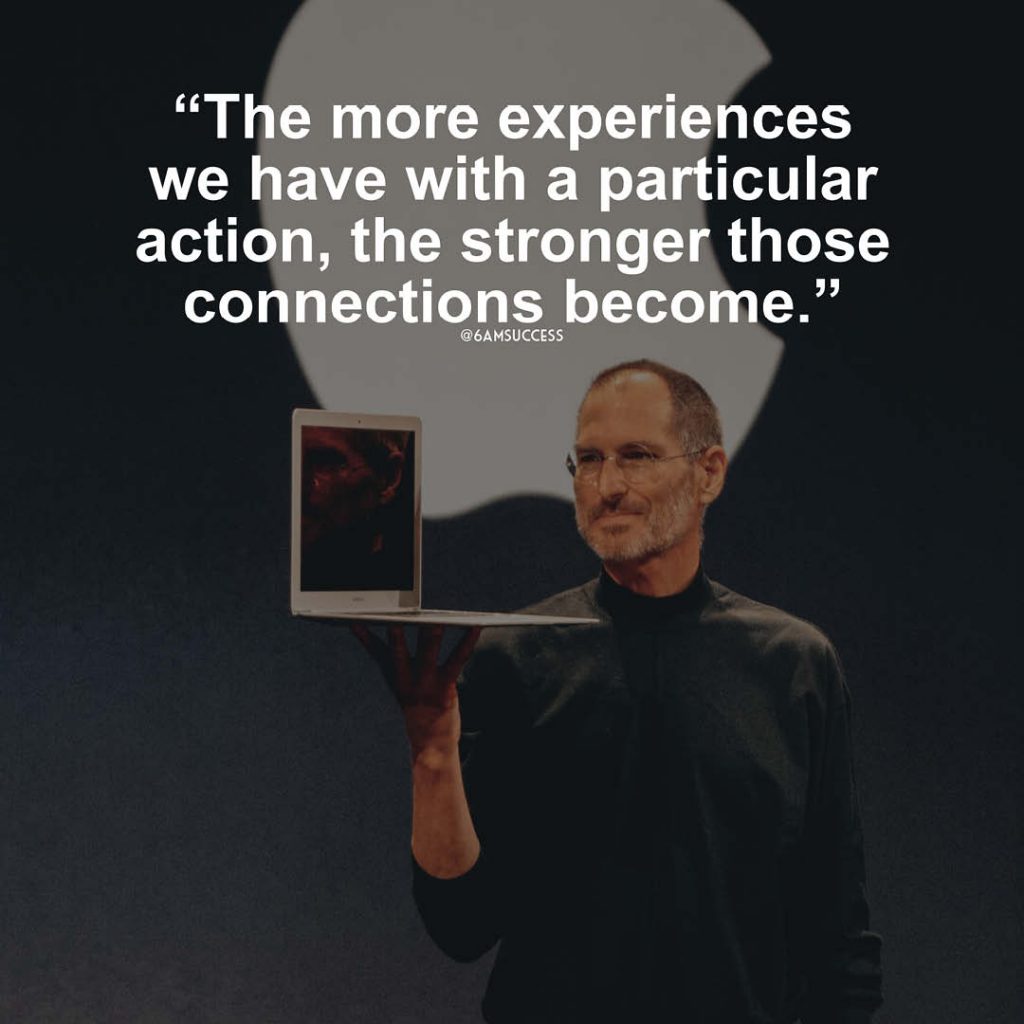
34. “The chief misconception about Jobs is that he is a natural presenter, that he was born with the charisma that he exhibits onstage. Not true. As research has shown, nobody is a natural. You can achieve the same level of proficiency of the world’s greatest communicators if you work at it much, much harder than everyone else.”
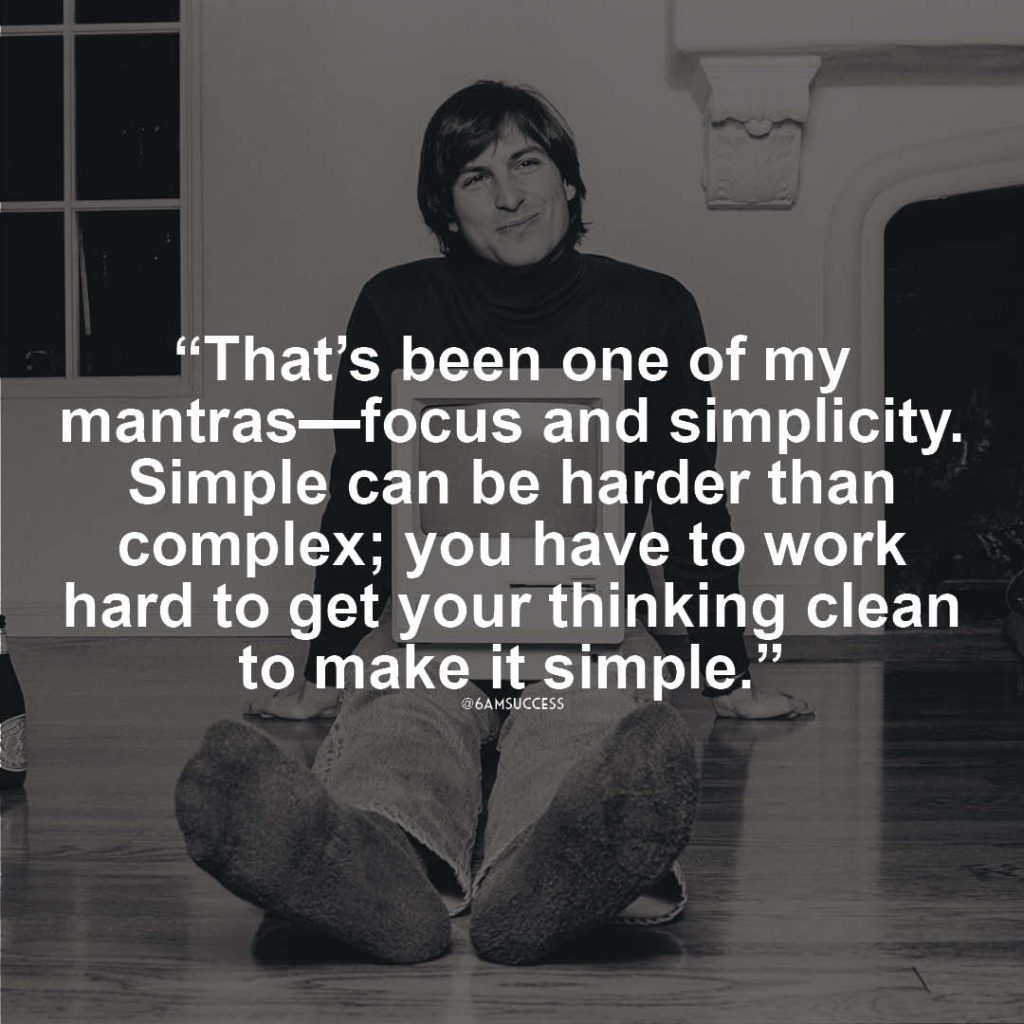
35. “The more you practice, the less nervous you will be.”
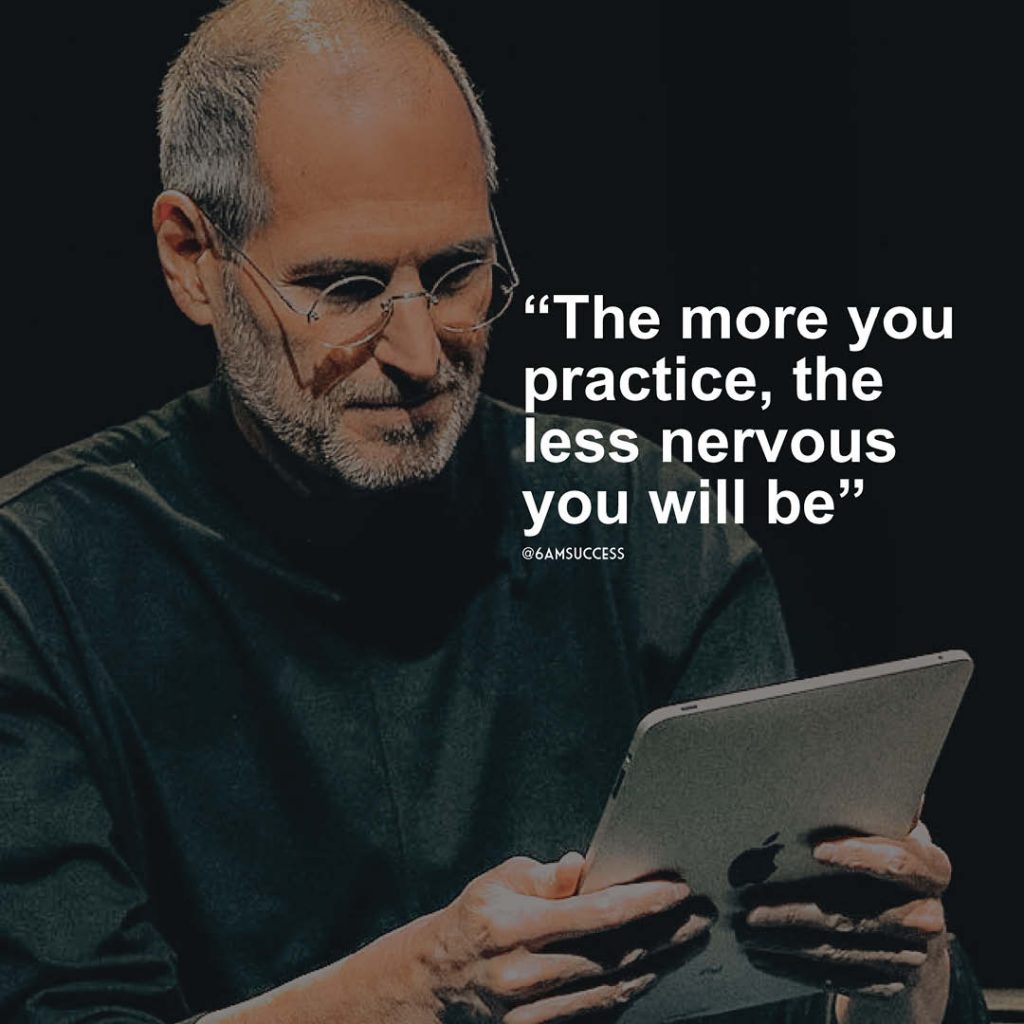
36. “Great leaders dress a little better than everyone else in the room.”
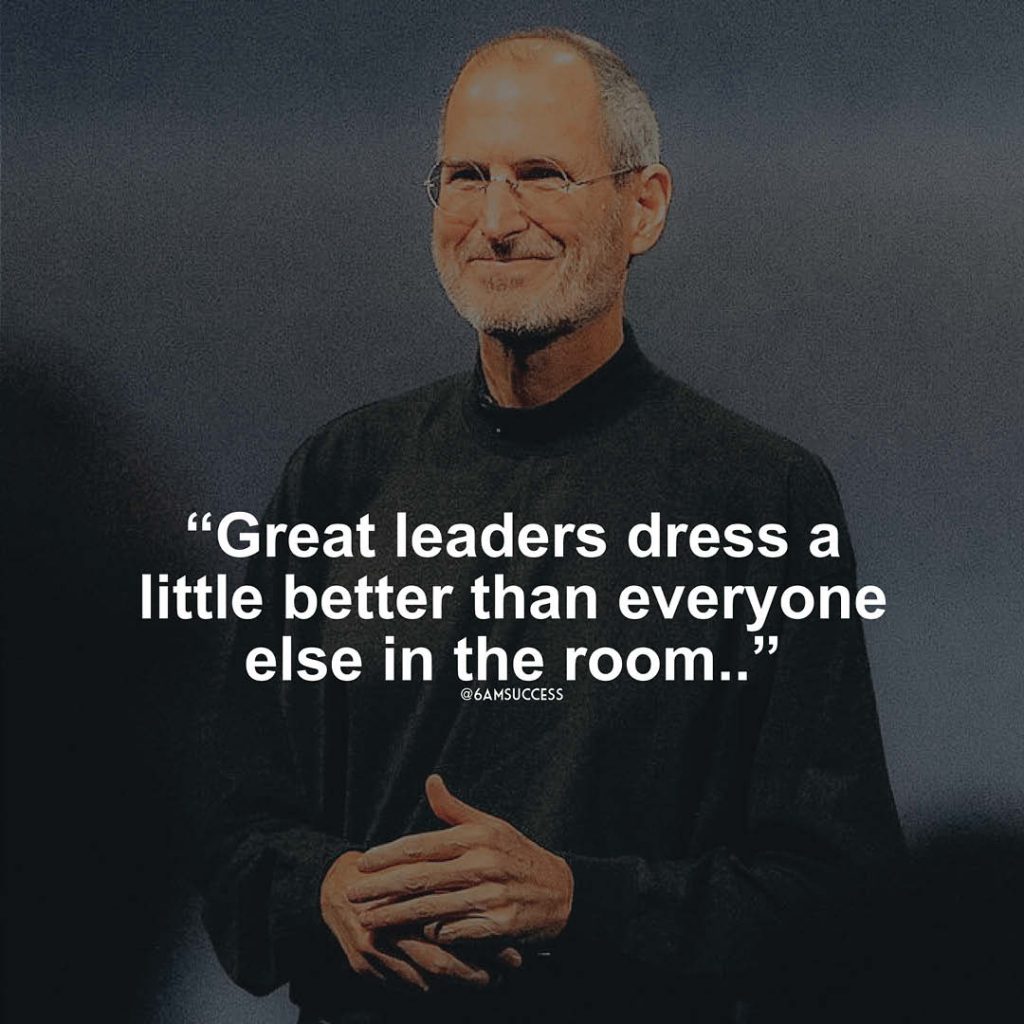
37. “Nobody expects perfection except you. Your audience will forgive a blooper as long as you get back on your feet.”
